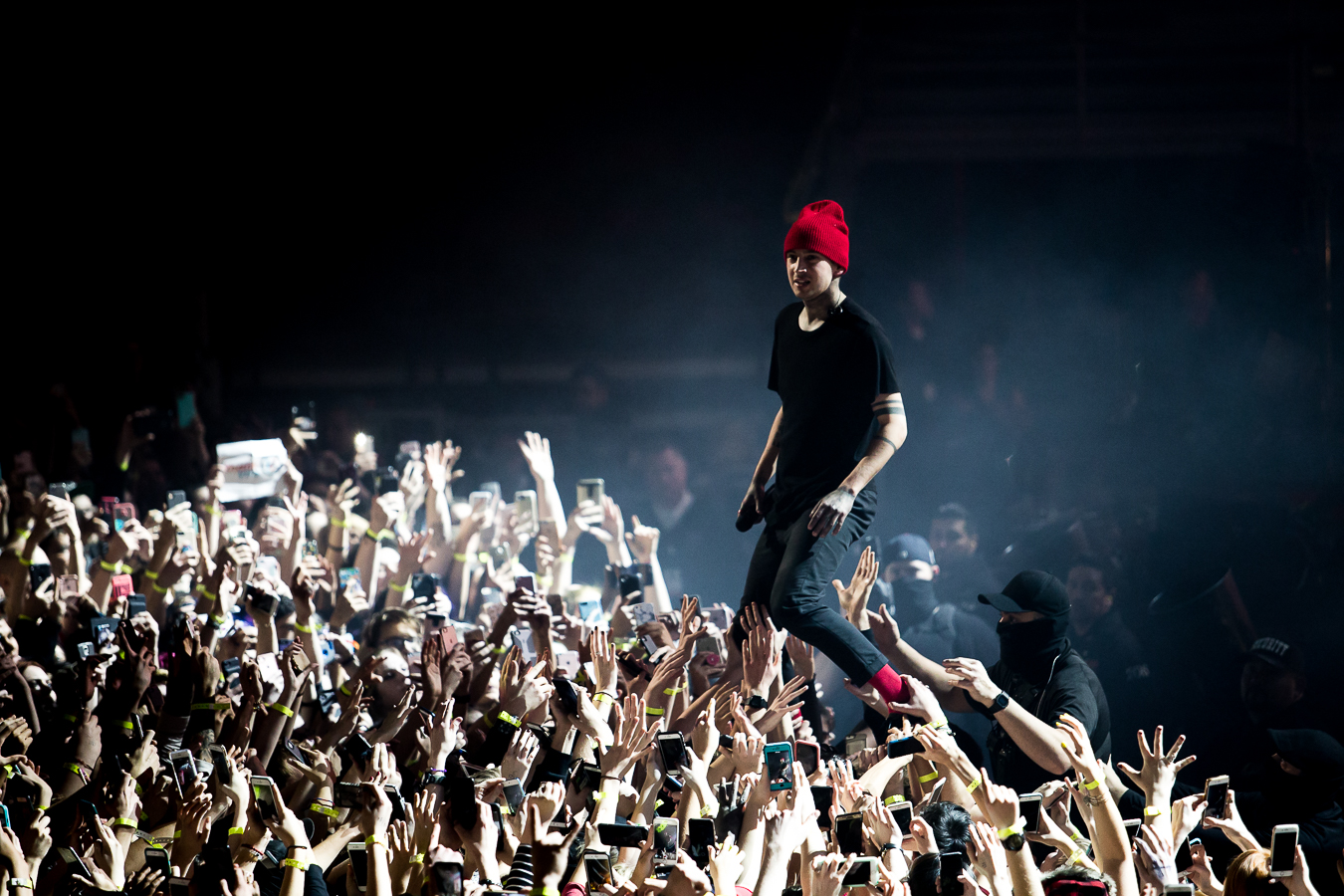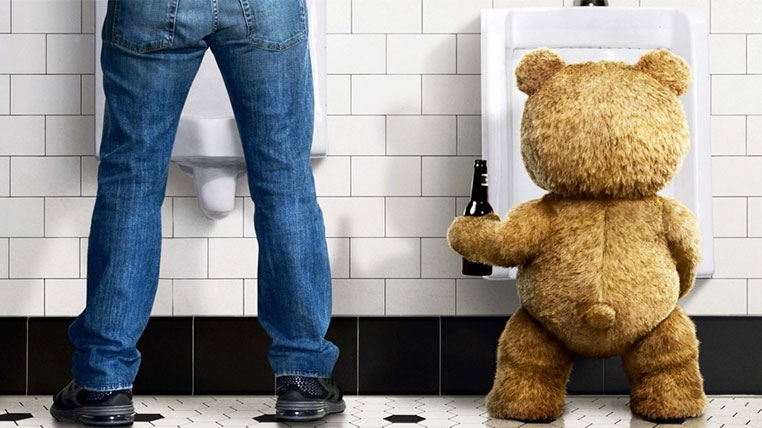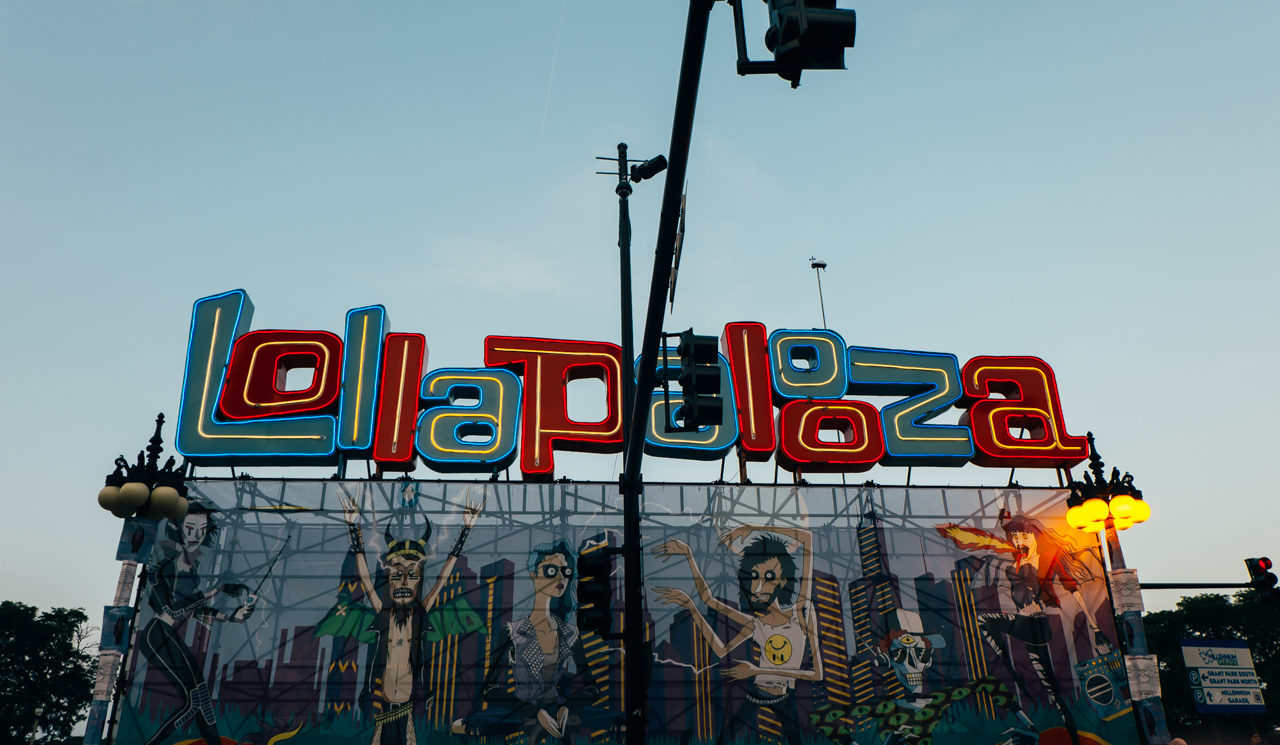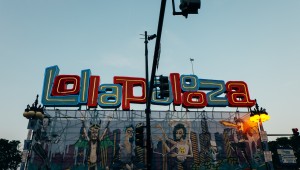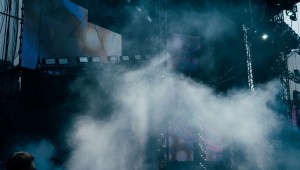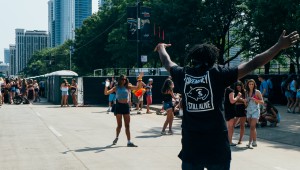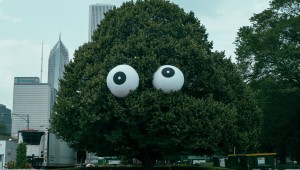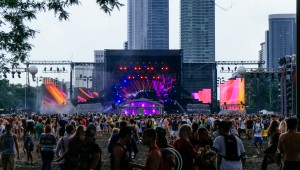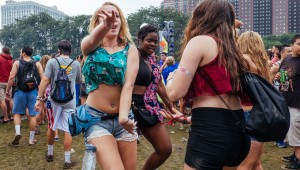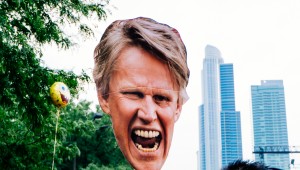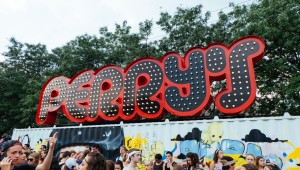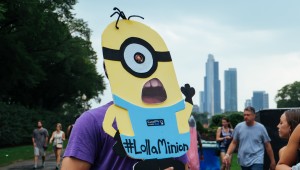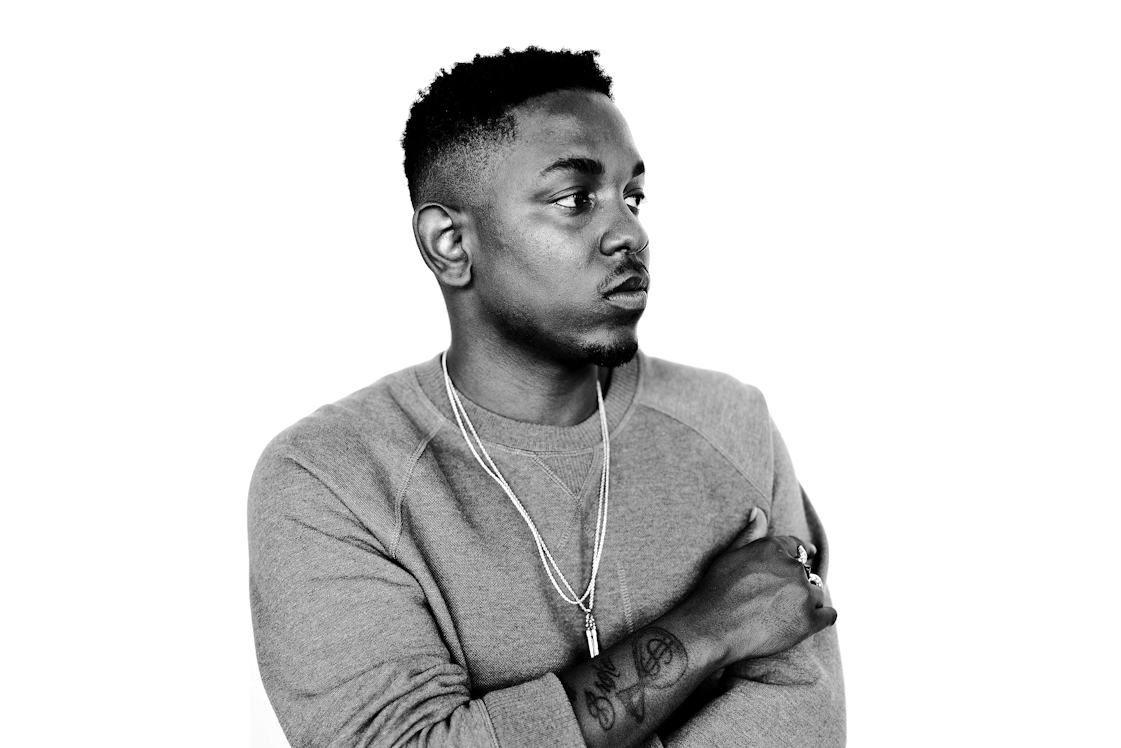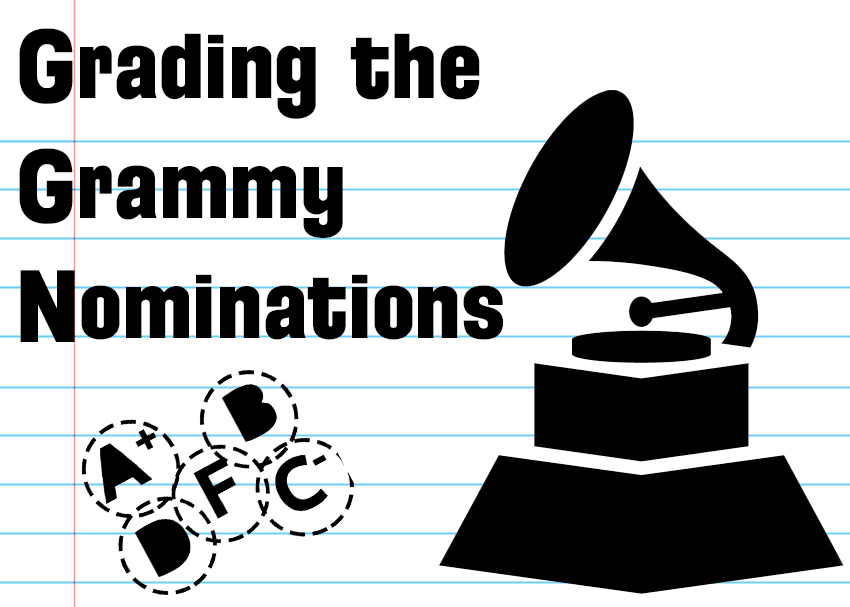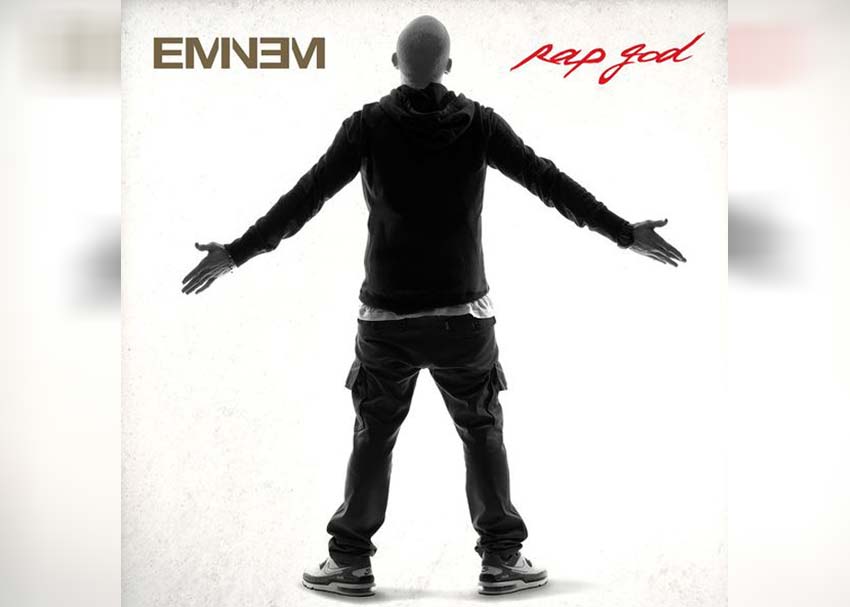[RH Interview] Black Milk Breaks Down The Fever, and The Importance of Truth
For over a decade Black Milk has been an integral part of the Hip Hop scene in Detroit, and the independent scene worldwide. As a producer, emcee, and performer, Black Milk has had a dynamic career, completely changing his style more than a few times while always staying true to himself and to his art. Back in February, he released his 7th entirely self-produced studio album, Fever, which he is currently touring on. Recorded in 2017, Fever is an intense, emotional album that addresses the tumultuous political and social climate in America since the 2016 election. I called him up to talk about his career, his city, and to ask if he thinks there is a cure to the “fever” that we all have. Read the full interview below.
https://youtu.be/rihOZ6z2ZyY
rubyhornet: How’s the tour going?
Black Milk: It’s going good so far. It’s good to play the new music, hear the new music and see people’s response to it, so it’s been good.
rubyhornet: The outro on laugh now cry later says “He just said the truth will make us free/Question that we have to ask is do people know the truth?” What is the truth that you want to bring to the world?
Black Milk: I don’t know if there’s an actual truth that I’m trying to bring to the world outside of staying true to what I do, who I am and what I believe. You know what I’m saying? Even with this album, I’m giving my own perspective on how I see the world and what’s going on in this day and age, I guess that’s the only way I can put that answer.
rubyhornet: It’s interesting because right now is a time in history when truth is up for debate.
Black Milk: Yeah definitely, even when we all know what the truth is, the powers that be find another way to distort what we already know. So many people are easily swayed into believing nonsense, that’s where the challenge comes in.
rubyhornet: So do you think that people do know the truth?
Black Milk: A lot of people do. Or at least I feel like some people have common sense, or a good intuition, to know when they’re on the right path. It’s a challenge to get the other side to not fall for the trap. It’s like a war that’s been going on for so long. It’s amazing how the people who always fall for the trap can’t see how the world is being pulled over their eyes. A lot of people don’t want information, some people just ignore the truth. It’s a cliché that has been around for a long time, the truth hurts. And it really does hurt and people have to face what the real is.
rubyhornet: One of the themes on Fever is how people are getting information, and how the culture around that is impacting us. If we look at the last few months in hip hop from Kanye West to the Drake/Pusha T beef, to what happened yesterday with X is this what you’re talking about on “Laugh Now Cry Later”?
Black Milk: Yeah man, I feel like we’re getting to a place where you’re not even conscious that you’re being consumed by being online, on social media. How many hours are you spending on your phone, in front of your screen? So me making a song called “Laugh Now Cry Later” it’s just about putting attention on that topic. It’s also about the emotional rollercoaster that you’re going through that people don’t even realize they’re going through. Feeling all of these different feelings while looking at all these posts. Scrolling through their timeline, stuff making them happy, stuff making them mad, stuff making them sad. You’re going through an emotional rollercoaster every few minutes, every few seconds, and it’s going to be interesting to see how that plays, if it even has an effect on us, years down the line. Especially the younger generation because they were born into this era of social media so it’s going to be really interesting to see how they handle it.
rubyhornet: And you don’t even really have time to process it.
Black Milk: You don't. You really don't. There’s so much coming at you that you put your phone down and it all kind of blows through your head and disappears. It’s an interesting thing, and an interesting period of time to be living in.
rubyhornet: You’re an artist that came up on the cusp of two major moments in the rap game, it was right at the end of the old way of doing things, and the very beginning of social media, how did that impact your career?
Black Milk: Coming up online and on social media, the internet is a gift and a curse. Without it who knows if I would have an audience. Who knows how I would have been able to connect to all of those people who listen to my music. If you take the traditional way of getting on, getting a major record deal then they take you through the motions. I don’t know if my music at the time would be considered something that a major label would take on. Luckily enough I had the internet. I came up in the MySpace age so I used Myspace as a tool to get exposure, to get connected to people and put my music out there. It was a snowball effect, over time it just kept building and building. The internet is a tool, but I think over time we’re being used by the tool instead of us using the tool, I think everyone is a victim of it to a degree. It’s kind of not to be caught up in it, it’s just the world we’re in.
rubyhornet: What were your main influences when making Fever?
Black Milk: I was listening to a lot of wavy type stuff, really vibey stuff at the time. I remember I was listening to Tame Impala’s Currents a lot. I was listening to The Internet’s Ego Death a lot too around the time so it put me in a place where I wanted to make something vibey and good, with my own twist of course, and that’s pretty much what I did. Going into the album it was supposed to be a feel good, upbeat album but because of where the world was at at the time and everything that was going on, you know with the election and police and everything, it changed what I was going to talk about, I felt like I had to give my perspective and address certain things that I saw going on. So when the album came out the music was feel good but the lyrical content was kind of heavy.
rubyhornet: So is that what the “Fever” is?
Black Milk: Yeah, it’s about living in a time when it feels like the temperature is high and everyone is on edge. It feels like it could explode at any minute. That’s why I named the album Fever.
rubyhornet: Do you think that there’s a cure to the “Fever” that the world has now?
Black Milk: Hey man, look, I’m not sure. Human nature is an interesting thing, I don’t think it’s anything that you can really cure. I do think that a lot of people are influenced by outside forces. I think that’s the goal. All you can do is influence people’s behavior and if you don’t get a hold on some of that then people will just keep getting crazier and crazier. I think that’s the first part, targeting the different forces that influence the way people think and the way people act, especially when those forces come from a negative space.
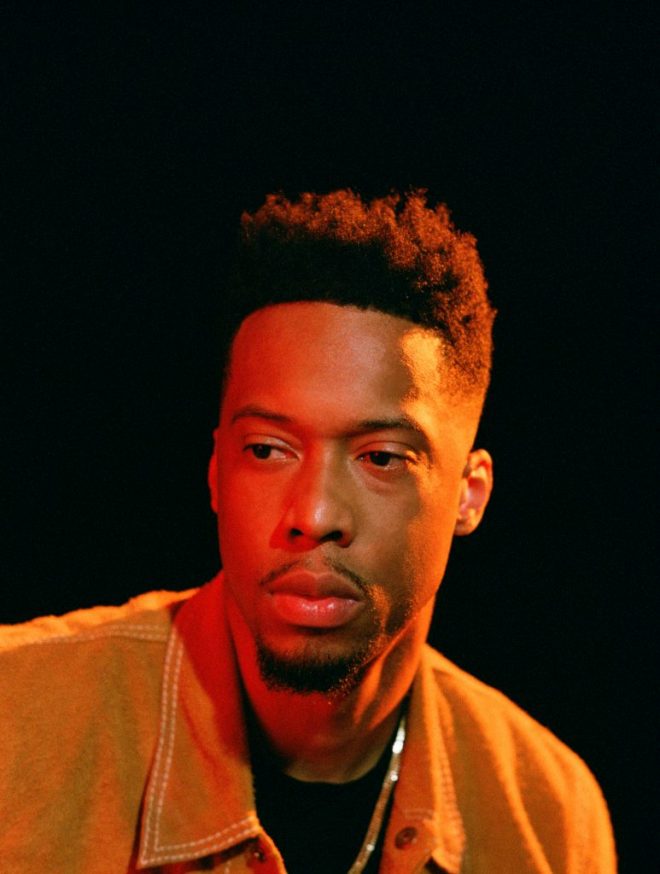
rubyhornet: What makes the Detroit sound?
Black Milk: The environment, I think the environment plays a part in the Detroit sound. It’s kind of a gloomy city, it’s always pretty cloudy and grey. I think that affects the music. Years ago when the auto industry began it brought an industrial vibe which is why a lot of the music sounds the way it sounds now. The streets of Detroit, the hood, plays a part in the way that the music sounds. I definitely think the environment has a big part in the sound.
rubyhornet: If you think about the biggest rappers from any other city, they tend to rap about all of the money and materials that they have, but rappers from Detroit don’t really do that. Why do you think it’s like that?
Black Milk: I think the Detroit rappers that are most known are the more lyrical rappers, even though we have street rappers… Most of the time they’re lyrical artists, for the most part the “hip hop” artists don’t brag as much as the street rappers. You have artists like Eminem, Royce da 5’9” and Danny Brown they come from the school that’s more lyrical, but then you have artists like Big Sean who’s a little more materialistic in his rhymes but he comes from a slightly different area. Plus a lot of the artists that are from Detroit still live in Detroit so you don’t want to be throwing that type of stuff in people’s faces that don’t have those material things cause that will put you in a place of danger.
rubyhornet: Even though you don’t live in Detroit anymore you still work with a ton of artists from your city, are there any that we should know about?
Black Milk: Artists from Detroit: Sam Austins, he’s a young artist. He makes real melodic, even kind of poppy, wavy type music which I think is really interesting for a kid that’s coming out of the city. Artists like ZelooperZ, he’s from danny brown’s camp. There’s a lot of artists coming out of the city with all kinds of sounds, all kinds of genres, so it’s kind of hard to give you a list.
rubyhornet: Definitely. I was in Detroit a few weeks ago and I was completely blown away by this group called Video7, have you heard of them?
Black Milk: Yeah, a couple of those guys played on my album. The guitarist, Sasha Kashperko he’s in Video7 and played on the album and keyboardist Ian Fink, he played all the keys on the album. Those two guys are incredible. Video7 is dope.

rubyhornet: What does it do for you creatively to work with a live band?
Black Milk: It just allows me to have a little more freedom in terms of where I can go. I can have a little more spontaneity in the live show. It opens my mind up to more things rather than just being stuck to just a record or a sample. You can be more original and do more things. It allows me to take chord progressions and melodies to a whole new level. I love incorporating live instrumentation into my show.
rubyhornet: How does that work? Do you bring the band a track and say, “This is a skeleton of it, let’s build it out”?
Black Milk: Yeah pretty much. For the most part I’ll bring ideas to them or I’ll hear a melody on a song from back in the day and we’ll build on it and expand on it and try to make something else out of it. That’s basically what it is, just bringing ideas whether it’s a beat or a melody and then we build on it in the studio. It’s bomb man, it makes you want to keep creating.
rubyhornet: I see a lot of Flying Lotus influence in the production on Fever.
Black Milk: That’s crazy. I feel like me and Flying Lotus are kind of cut from the same cloth so I can see how someone could hear similarities in the music, or hear some kind of connection. But with this one, I already mentioned some of the albums I was listening to when I was putting this together, but I wasn’t really listening to very much hip hop I was listening to a lot of indie stuff.
rubyhornet: How do you keep your sound so unique? I know a lot of artists that don’t listen to other people in their genre when they’re writing and recording an album, do you do that?
Black Milk: Nah, I still listen to what’s going on. Cause when I walk into projects I feel like I always have my own unique perspective or direction in a way that no one else is going to think about going in so I don’t really about being influenced by other projects or other artists that might steer me in a different direction, I kind of always know what I want to do. I’m always listening to the music that’s out there to try to stay aware of what’s going on in modern music. I try to take little things here and there and incorporate it into my sound because you never want to sound dated.
Anyone Else Notice The Odd Sense of Joy Around Trashing Eminem's New Album?
In 2008, Frank Thomas hit .240 with 8 home runs split between the Oakland A's and Toronto Bluejays. During his final season in 2001-2002, Mitch Richmond averaged 4.1 points per game for the LA Lakers. Cal Ripken's last year as a baseball player saw him hit just .239, while Shaq (the almighty Aristotle) logged 37 games in his last season in the NBA while averaging 9.2 points per game for the Boston Celtics.
So, what is my point? My point is that farewell campaigns don't often feature a massive demonstration of excellence. Very few athletes go out like Peyton Manning or Michael Jordan (the second time he retired after leading the Bulls to their second 3-peat). The same can be said for many professions.
During my lifetime, I've been in the final class for a handful of teachers. While I am the son of a CPS teacher, taught in CPS for a few years, and currently teach at Columbia College, I must say that it was apparent in every case that it was time for that teacher to retire. I can only assume that the same can go for plumbers and there's not a plumber somewhere on the edge of retirement who would view his or her last toilet installation as their best work... No diss to teachers or plumbers. My point being that the last of something always is the last of something for a reason.
So still, where am I going with this? Over the last month or so, Eminem has been campaigning around the release of his 8th studio album, Revival. If you've seen anything about it, you've undoubtedly seen the poor reviews and reactions on social media more often than not slamming the project. I'm not here to defend Eminem's music or new album (which I know is not for sure his last). To keep it fully open, I made the mistake of thinking Eminem would be a one-hit-wonder style rapper after his first album dropped when I was a junior in high school. I was very fucking wrong.
About his new album, I streamed it on the day of its release and haven't revisited it since, nor had the burning desire to put it on. When I listened, I felt next to nothing. I thought some songs had promise, others were not very good. For every good bar or concept, there was another one that missed the mark or was just silly. That's Eminem right now. I think his recent interview with Complex was great because he was fully open about where he's at in his career. He's about rhyming. The skill of putting words together is his main skill and this is a guy who has gotten so good at it, he can't even figure out how to stop rhyming words together. He said in the interview,
"I think that there's still a lot of people that don't understand compound syllable rhyming and being able to take entire sentences and make them rhyme and stuff like that. They might not hear that, so they're not gonna be able to appreciate that, because they hear what they hear and then, "Ah, man. That shit is wack." Okay, but maybe you don't understand what I'm doing.
I feel like one of the things that's happened to me over the years is rapping getting harder, but rhyming gets easier, if that makes any sense. One of my drawbacks I feel like that I did on the last album, The Marshall Mathers LP 2, was long verses, because I couldn't get the rhyme to end. In other words, when I think of a couple phrases or whatever it is, I think of so much shit that rhymes with it and connecting the syllables and doing all that, but by the time it's all said and done, is this different than anything I've done before? I've done a song like this, so now I don't like it because it may not be talking about anything. It may be just connecting words together and just to get a reaction, but it's not really that good. I don't know."
The interview was really open, and it made me think a bit more about all the criticism I'm reading online, about Em and his new album. What kind of struck, and drove me to write this article about something that in all honesty is not very important, is that a lot of the reviews seem to take pleasure in Eminem's new album not being very good. It is as if critics were hoping the album was bad so that they had something to write about. Before the album even dropped, I'd say the general pulse was that it was not going to be good, Eminem is no longer good, and now, there is the narrative that Eminem was never even that good.
As I said before, I'm not a big Eminem fan. I don't own the majority of his albums, and I'm sure you can find posts on this very site that I've written slamming some of his music. But this album really isn't that bad, and this album's performance shouldn't go back and change the impact he's had on music and how for a moment in time, the dude was fucking killing it. Em is also one of the few white artists actively going after Donald Trump and pushing his fans to recognize the institutional racism that Trump represents, benefits from, spreads, and is currently trying to make stronger. Does that earn him a cookie, no, cause that's what he should be doing, but in the reviews I've read, the actual subject matter of his music is an afterthought.
No one mentions Frank Thomas' final season or how bad Mitch Richmond was before he retired. Shit, the Beastie Boys' last album was their worst (that's even hard for me to type). In all those cases the work was reviewed but there was no joy in extreme pointing out the mistakes. The album's not that good, fantastic. But how much more attention should be paid to how bad it is, rather than finding and celebrating the next artist? Why make Em the butt of recurring jokes, where there is so much more to write about?
Even as I write this article, I am laughing at myself for spending time on something so trivial.
Songs For Keith Olbermann - A Collaborative Playlist
Man... I know, I know, I'm late. All the Eminem BET Cypher discussion happened last week. We're passed that now. I'm not really here to add another think-piece about Marshall Mathers and his Anti-Trump performance, there are plenty already out there that make points way better than I could.
What I do want to write about is fucking Keith Olbermann and his smug comment that Eminem's freestyle removed 27 years (?!) worth of doubt that he had about rap music. He never fully explained what the doubt centered on, so I can only assume he doubted it as a genre capable of important social messaging? Maybe the doubt was about a rapper's ability to hold political thoughts? Keith, did you doubt an emcee's desire to pay attention to current events?
That comment and the way he made it - as if his tweet provided some sort of holy and sought after validation on rap music - really bothered me. Oh shit, Keith Olbermann is on board?! I think we got something with this hip hop shit after all. GTFOH Keith. Seriously.
I am a big fan of your videos on GQ and your persistent stance against Donald Trump. But you continue to deliver that message with a tone of arrogance and cockiness that is extremely off-putting. This tweet you made is a prime example of why people don't fuck with you...
But, yo, now that you have no more doubts about rap music, I have a secret for you - rappers aren't just rapping about Donald Trump! Shocking right.
What if I told you that Hip Hop music has centered on societal critiques since its inception - gasp - over 40 years ago! What if I also told you that there are songs about past presidents too. Hold up Keith, did you know your boy Eminem actually made an anti-George Bush song back in 2004 to inspire people to vote for John Kerry? Maybe if you were paying attention and shared that one, history would have played out a little different.
Anyway, Keith, here's a little playlist I made literally in 5 minutes without even really thinking. The playlist contains Hip Hop songs that address everything from politics to healthy eating, from police brutality, racial inequality, zealous patriotism, xenophobia and general complacency Check this out, and let me know what you think. Isn't crazy how deep this genre gets?
To our readers - please hit us up with more songs that should be added and lets make this a collaborative playlist.
Twenty One Pilots, Jon Bellion showstopper show at the United Center
Alternative hip-hop/rock duo Twenty One Pilots have been on the road for their Emotional Roadshow World tour. Stopping in Chicago, Twenty One Pilots put on an unforgettable show from start to finish.
Originating from Columbus, this self-starting band has exploded in popularity because of their originality and thought provoking storytelling. The duo has been nominated for three Grammy Awards for Stressed Out (Record of the Year), Best Pop Duo/Group Performance, and Best Rock Performance.
Support for the tour has respectfully opening performances from Judah & the Lion and Jon Bellion.
Jon Bellion


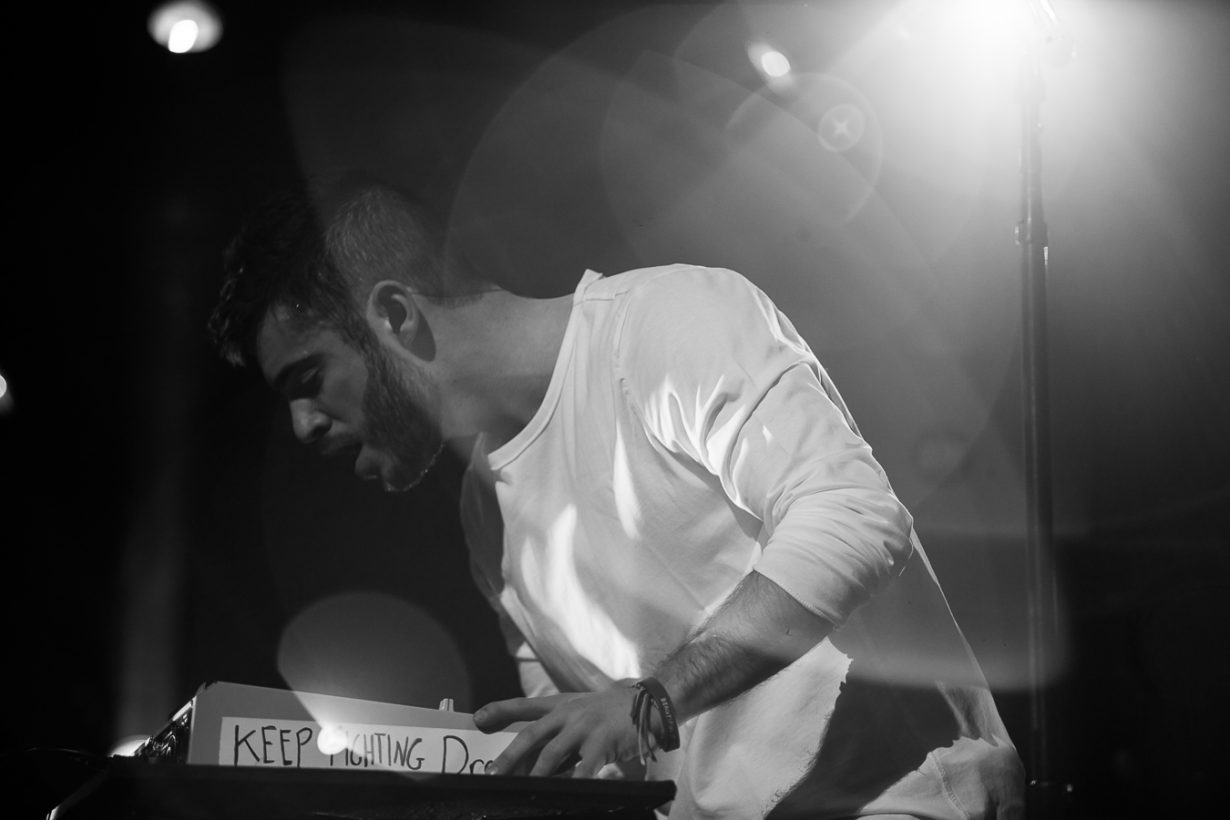
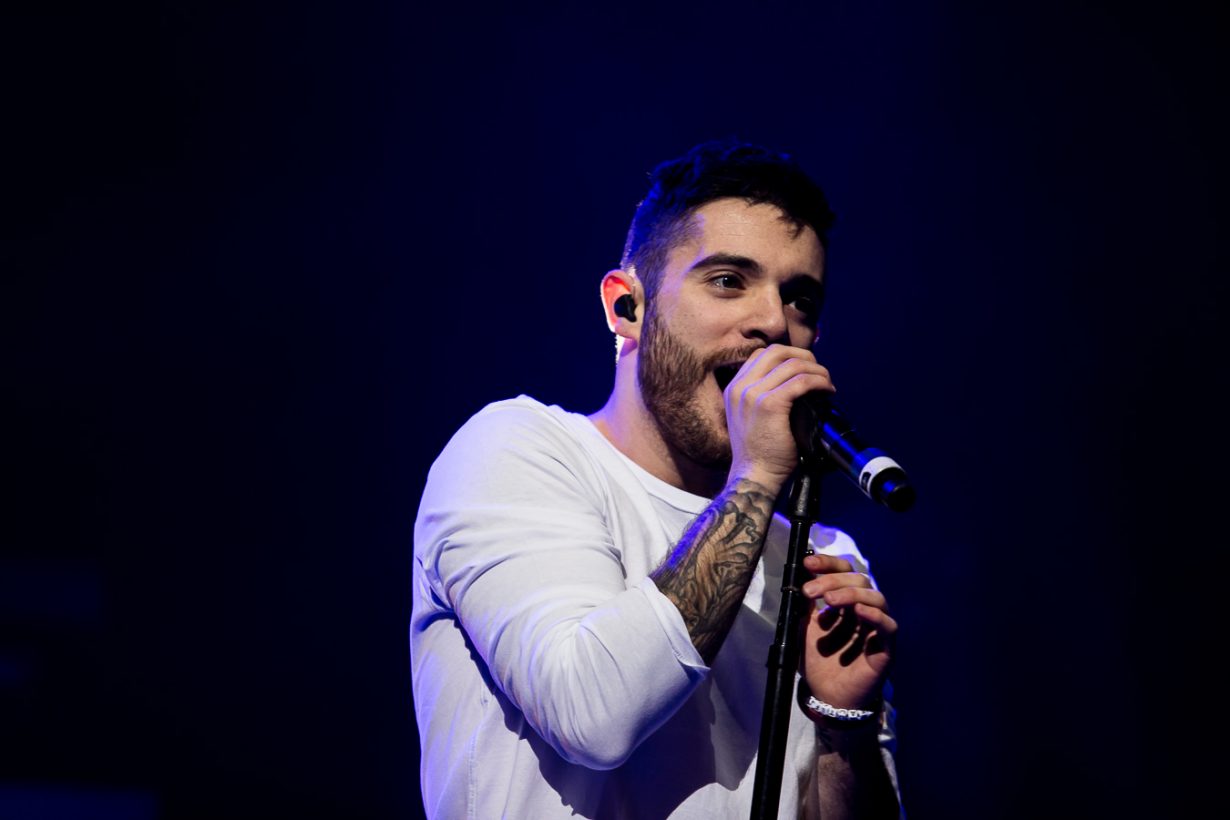
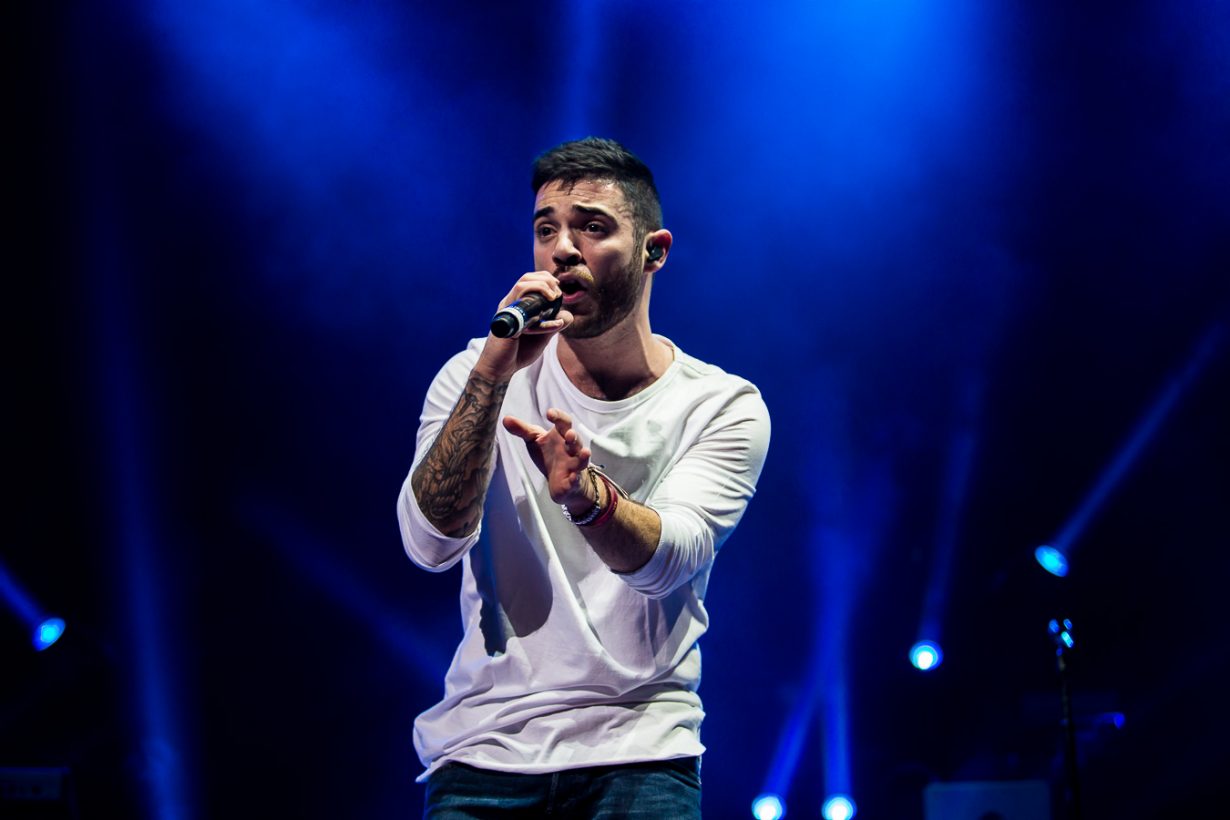
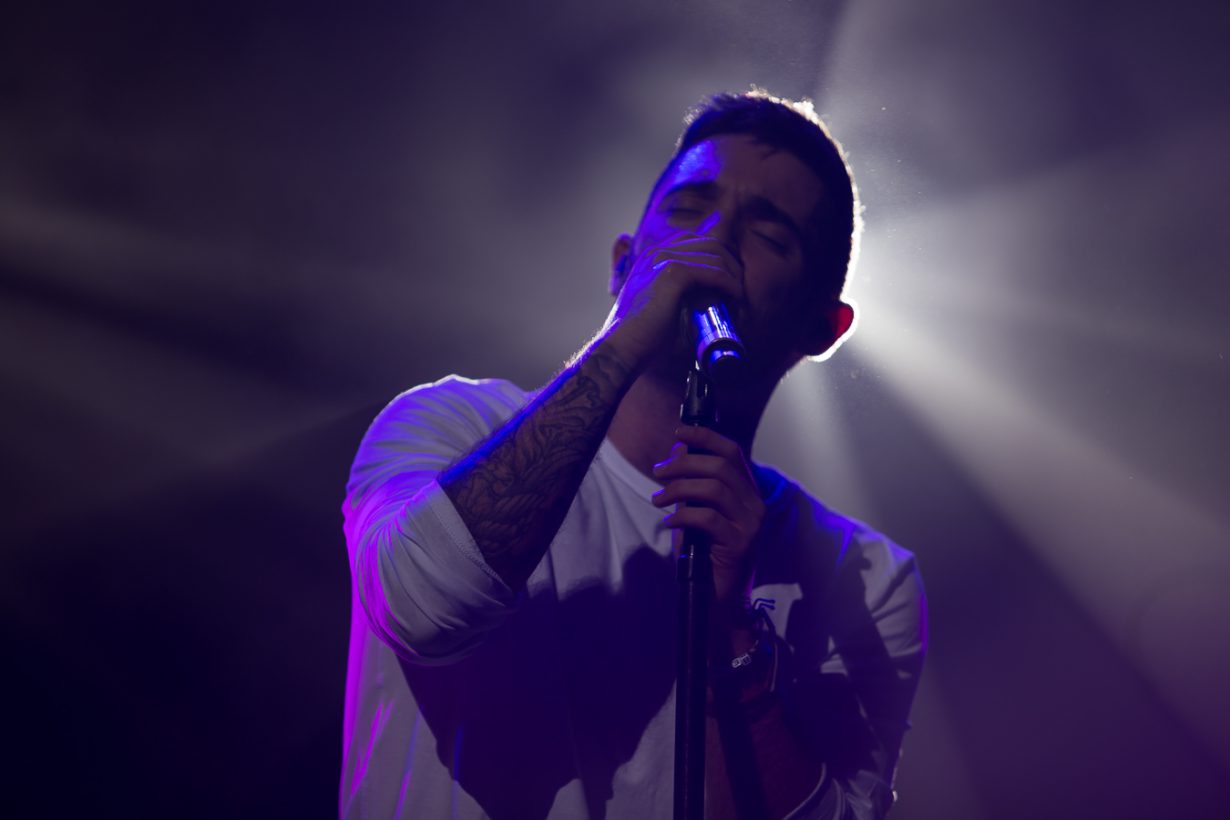
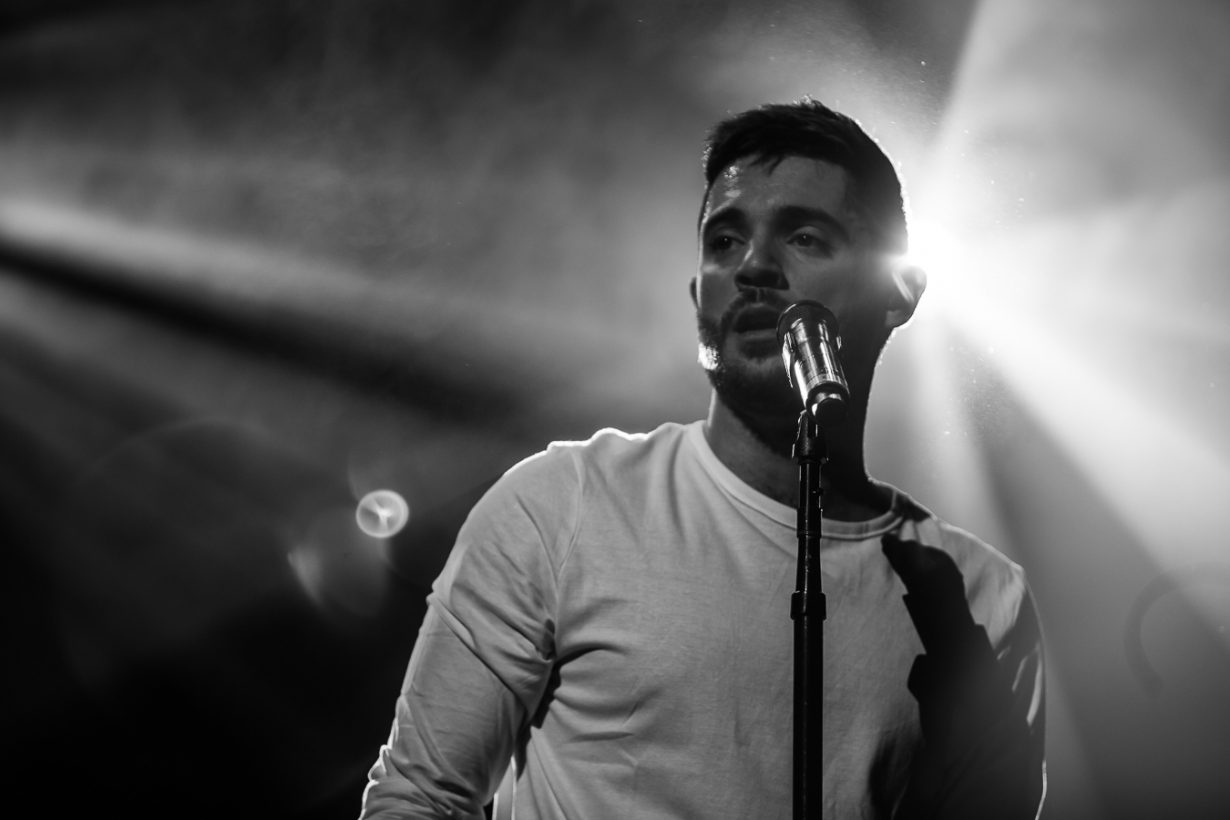
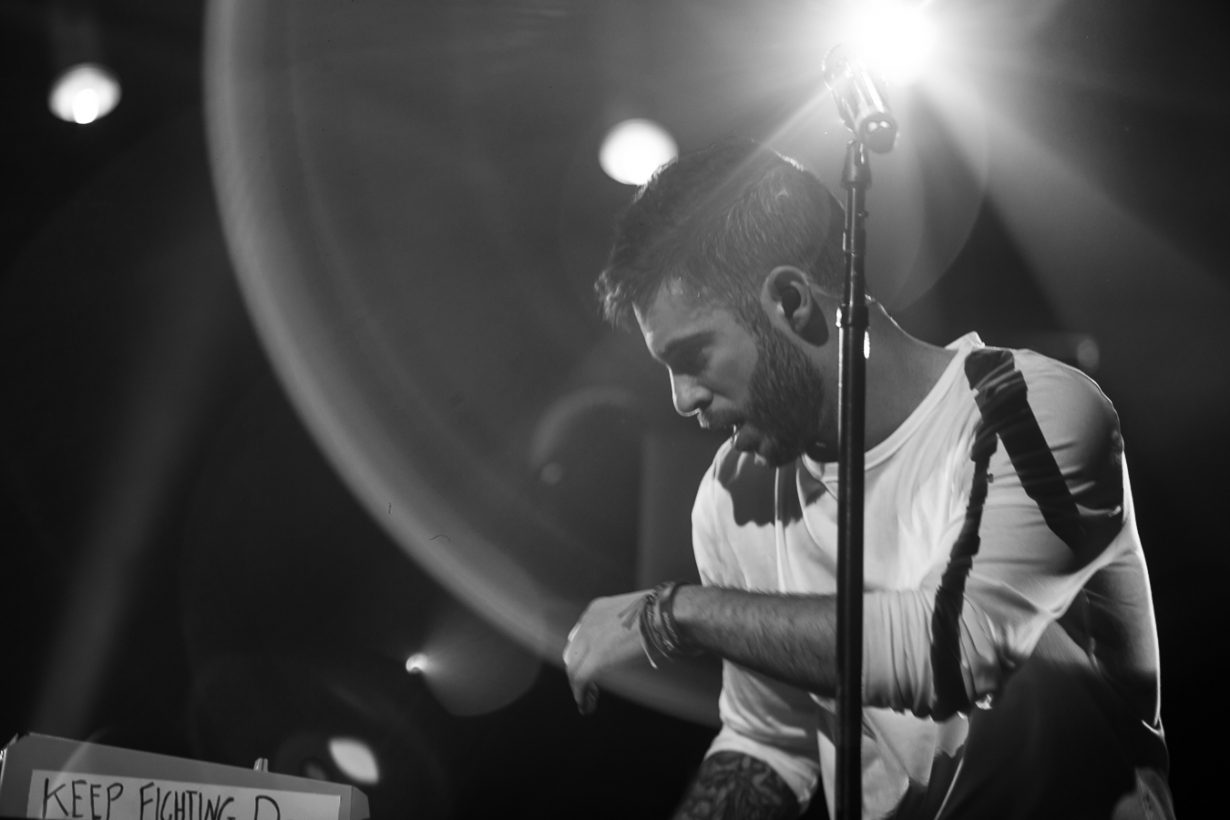
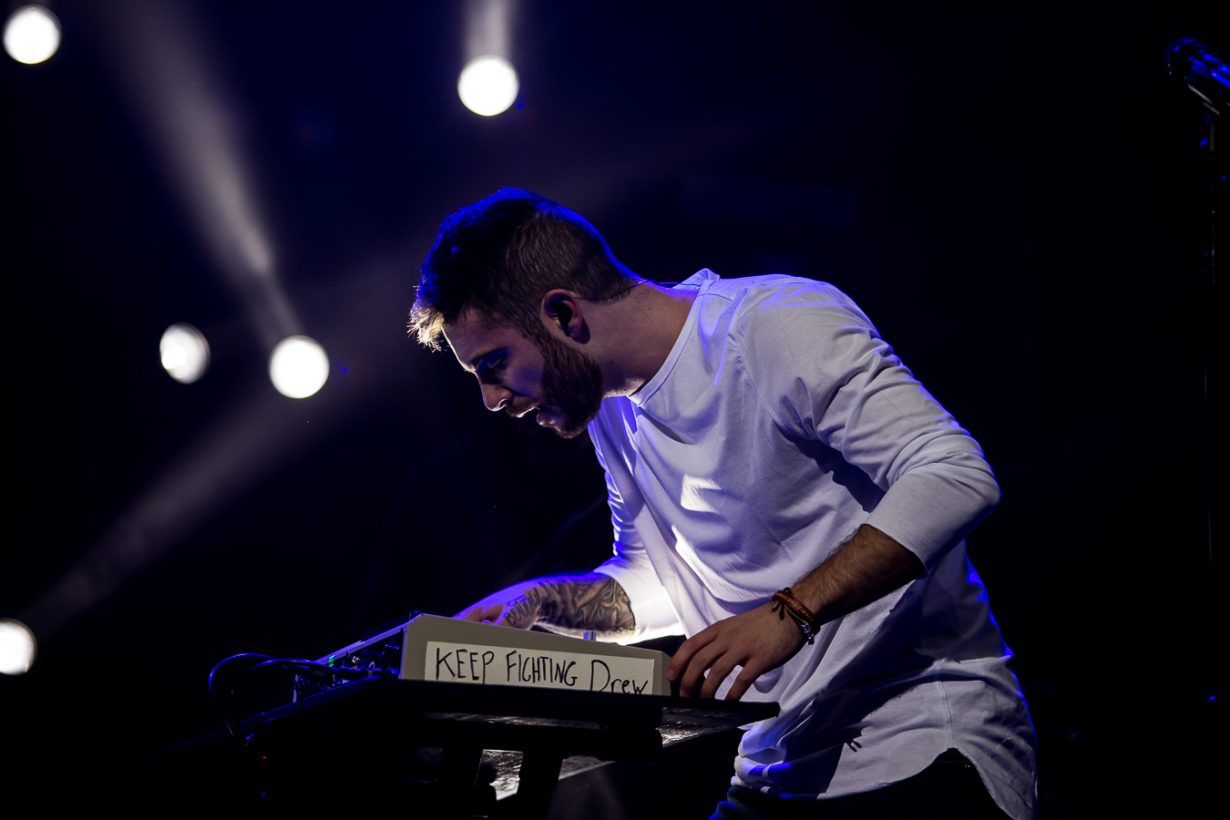
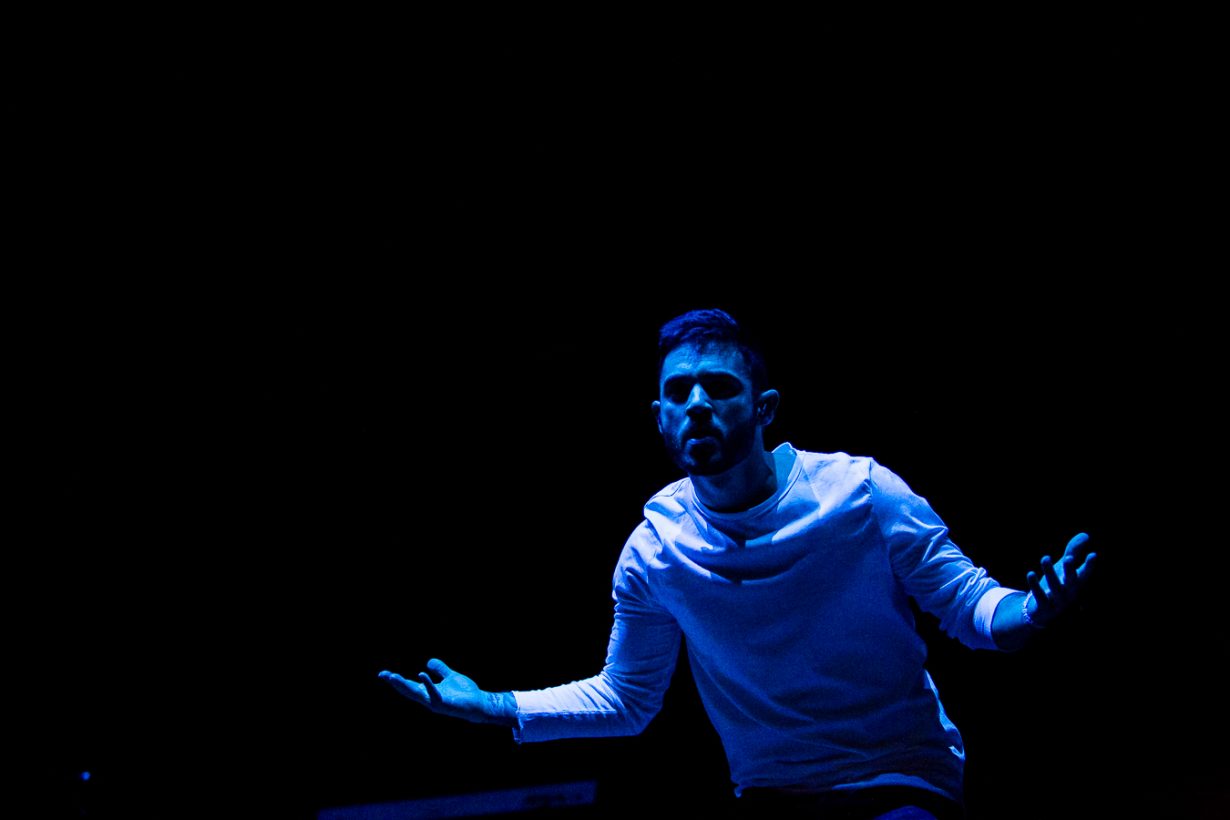
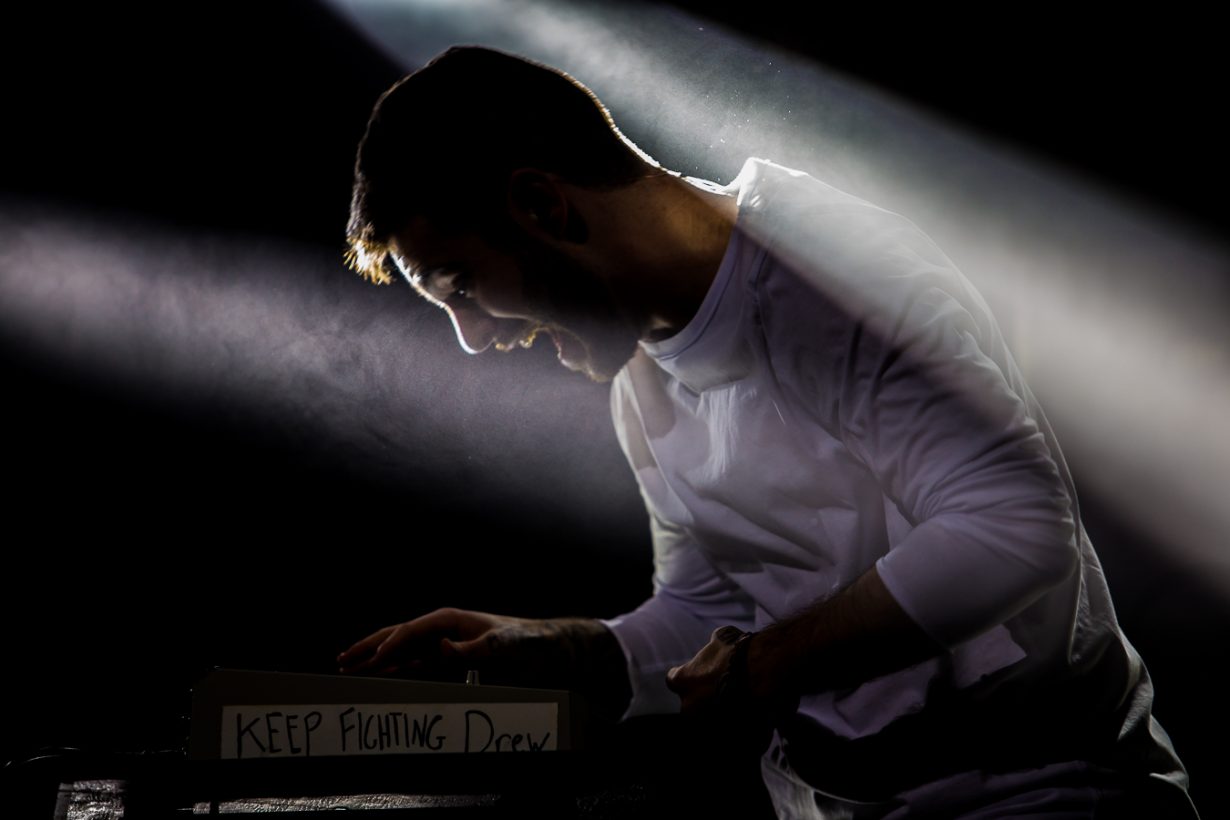


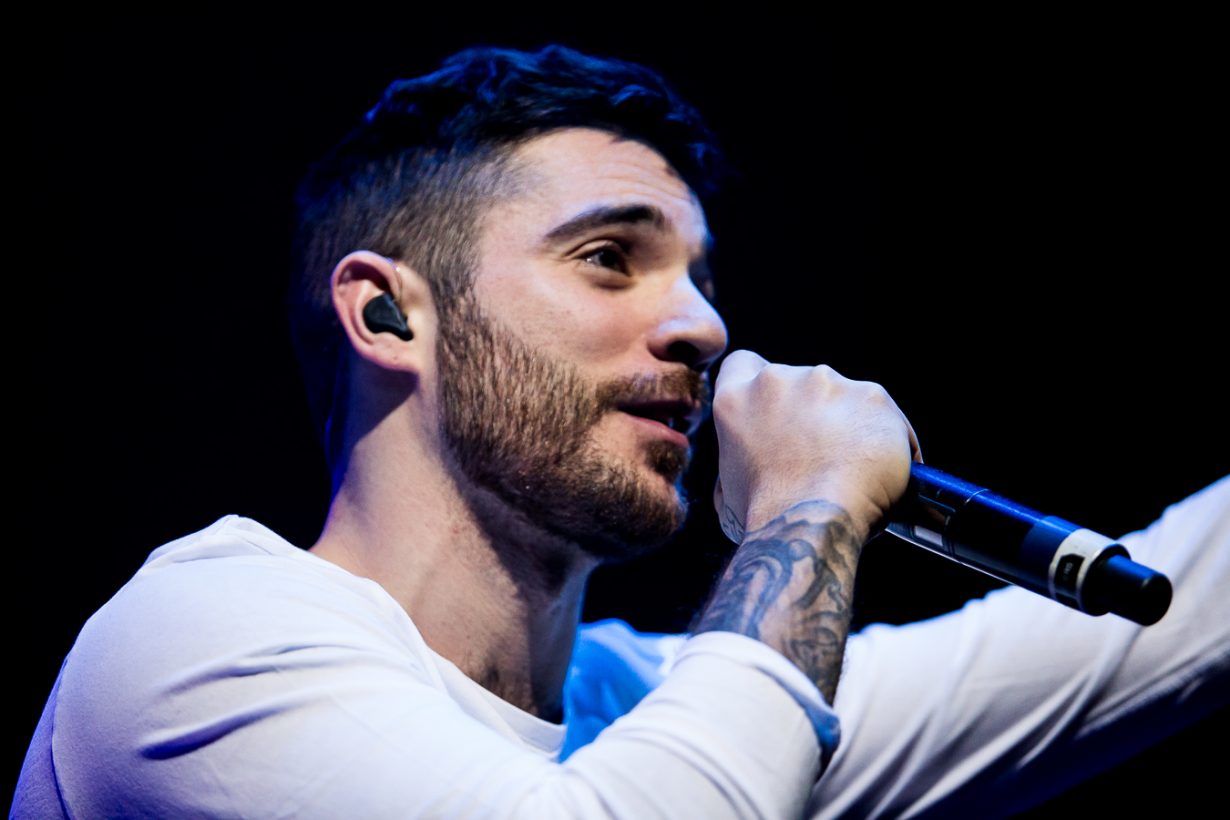
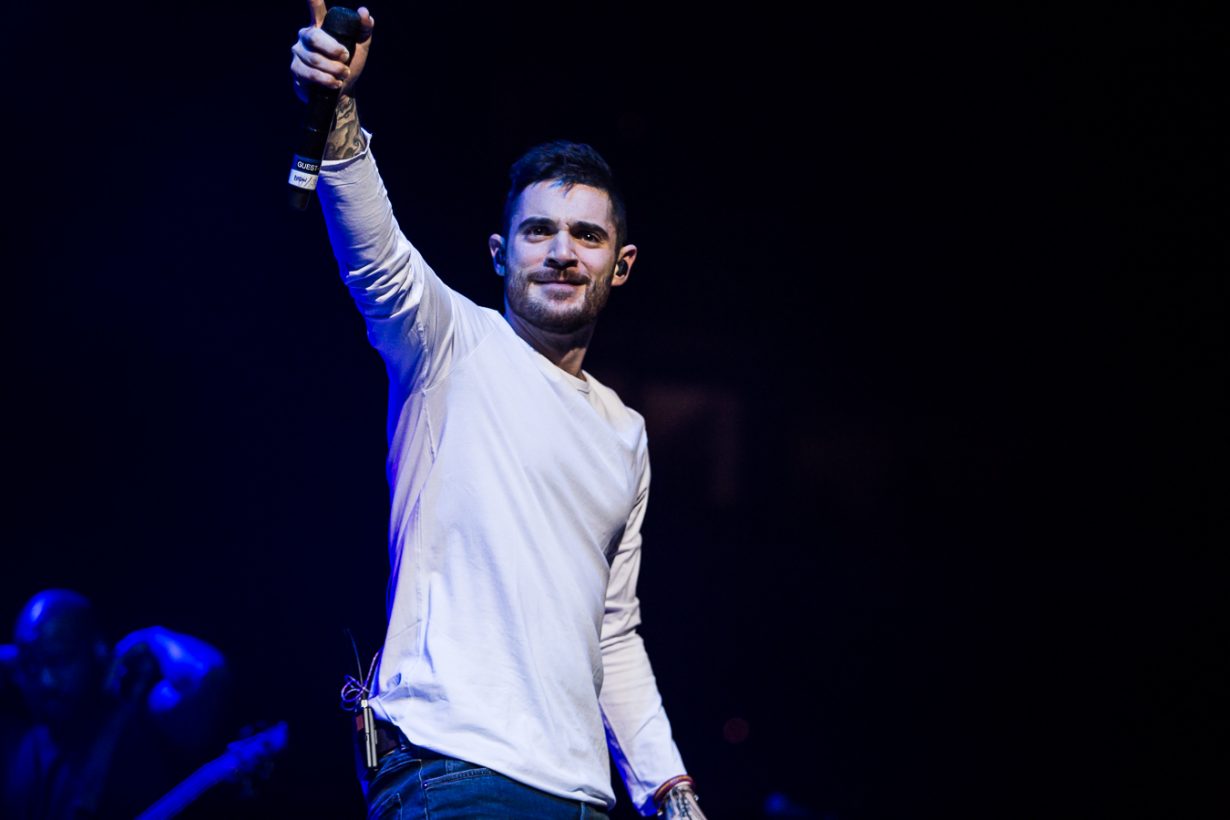


Long Island singer and songwriter Jon Bellion supported Twenty One Pilots opening for the duo in the most energetic way. Bellion, no stranger to the limelight, brought his signature vocals mixed with the perfect fusion of upbeat tones and lyrical rap race.
Bellion’s has seen success most notably from his first three free mixtape/albums: Translations Through Speakers, The Separation, and The Definition. He is also known for his work on Eminem’s hit record ‘Monster’, featuring Rihanna. Bellion has been on a steady rise thanks to his creative unique sound, that has molded him into an artist that has many paying attention.
Now supporting his full-length debut album, The Human Condition, Bellion is getting his much needed recognition. His debut album entered the Billboard 200 at the number five spot.
A new kind of artist, Bellion balances the impressive level of smooth pop vocals and the bold hard tune of hip-hop beats and rapping.
Bellion didn’t disappoint fans, while gaining many that night, with his happily energetic set. Performing from The Human Condition, Bellion’s “All Time Low”, was a crowd favorite that could have been played all night.
Hailing from Nashville alternative band Judah & the Lion didn’t have any issue in performing a show stopping performance opening the night. Performing from their Folk Hop N’ Roll album this band will be a treat to see the growth of the promising band.
Twenty One Pilots
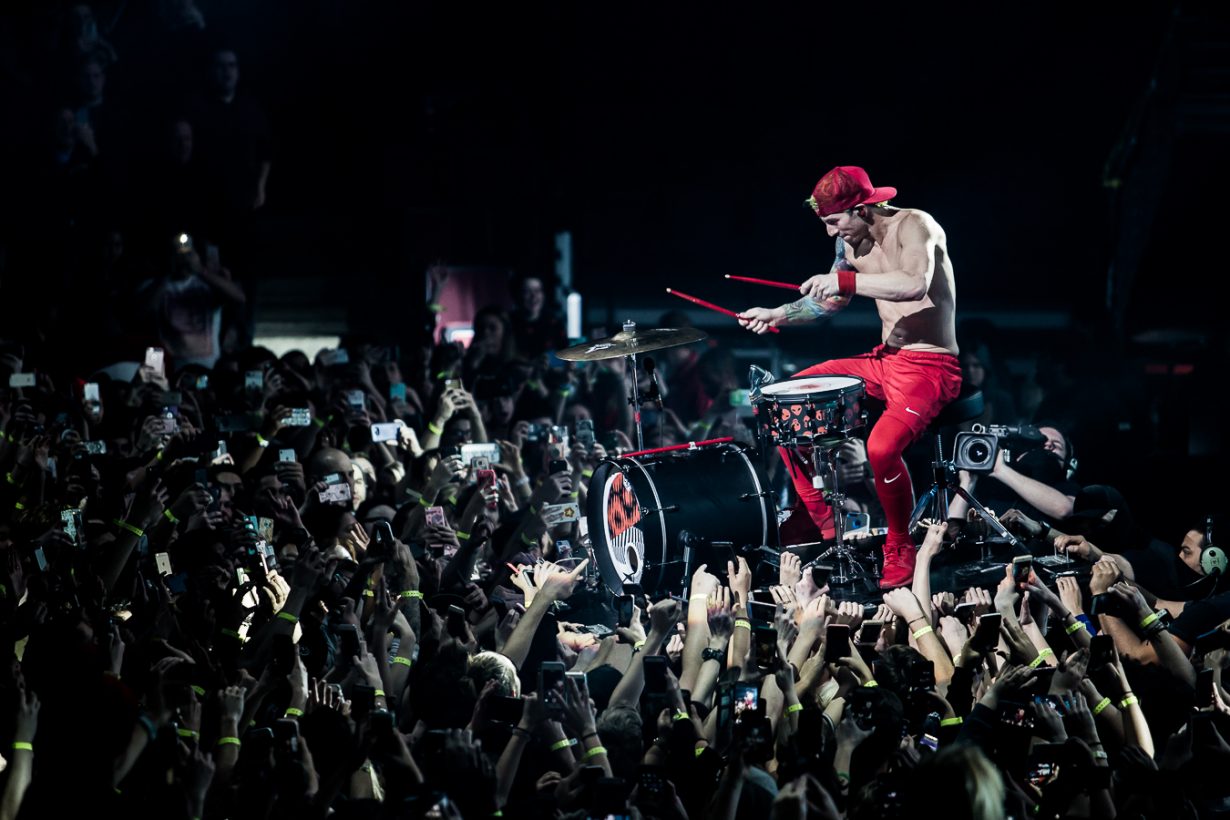
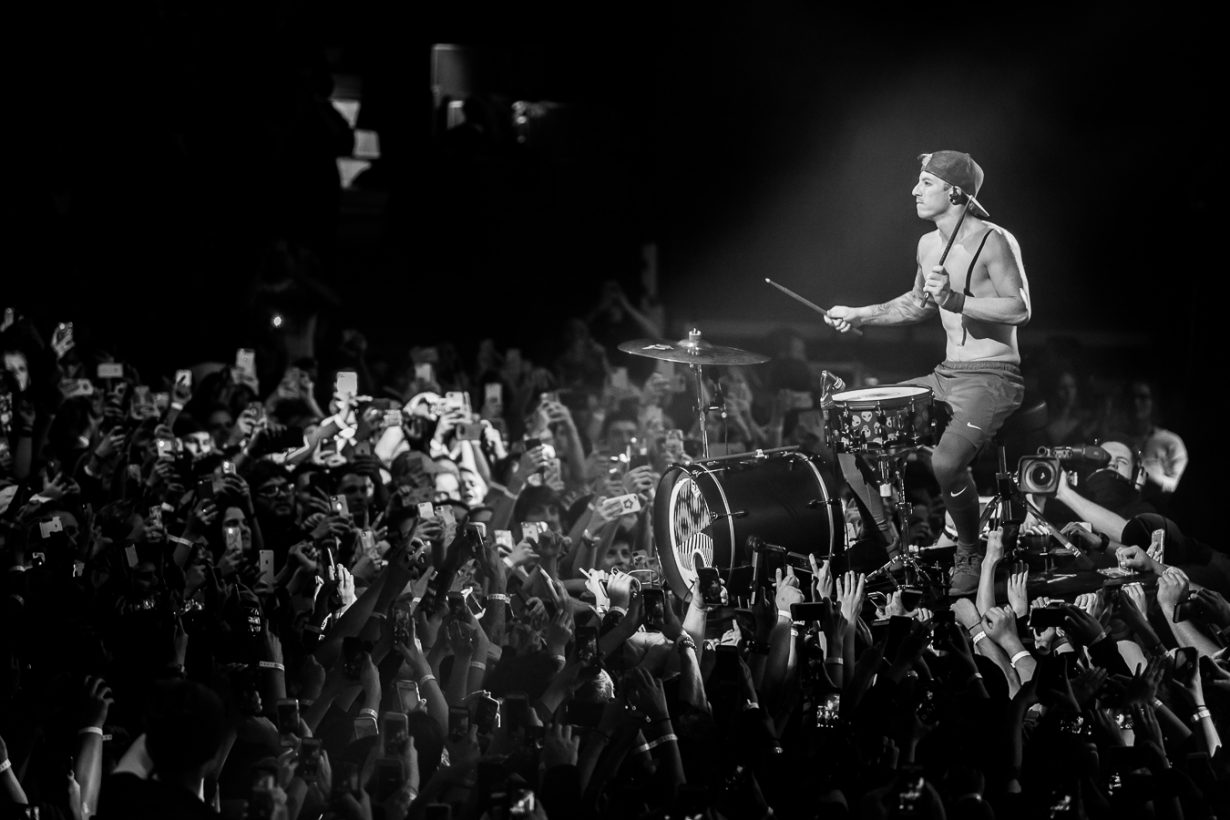
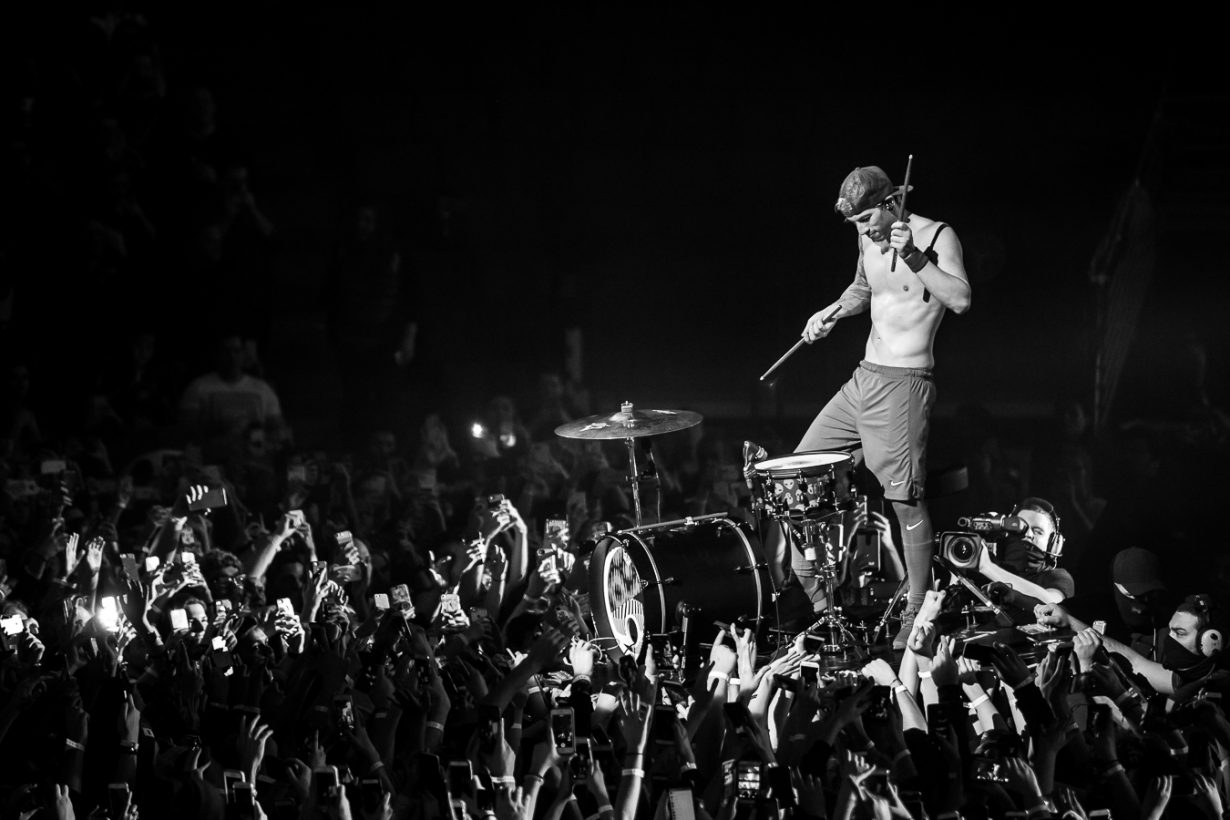
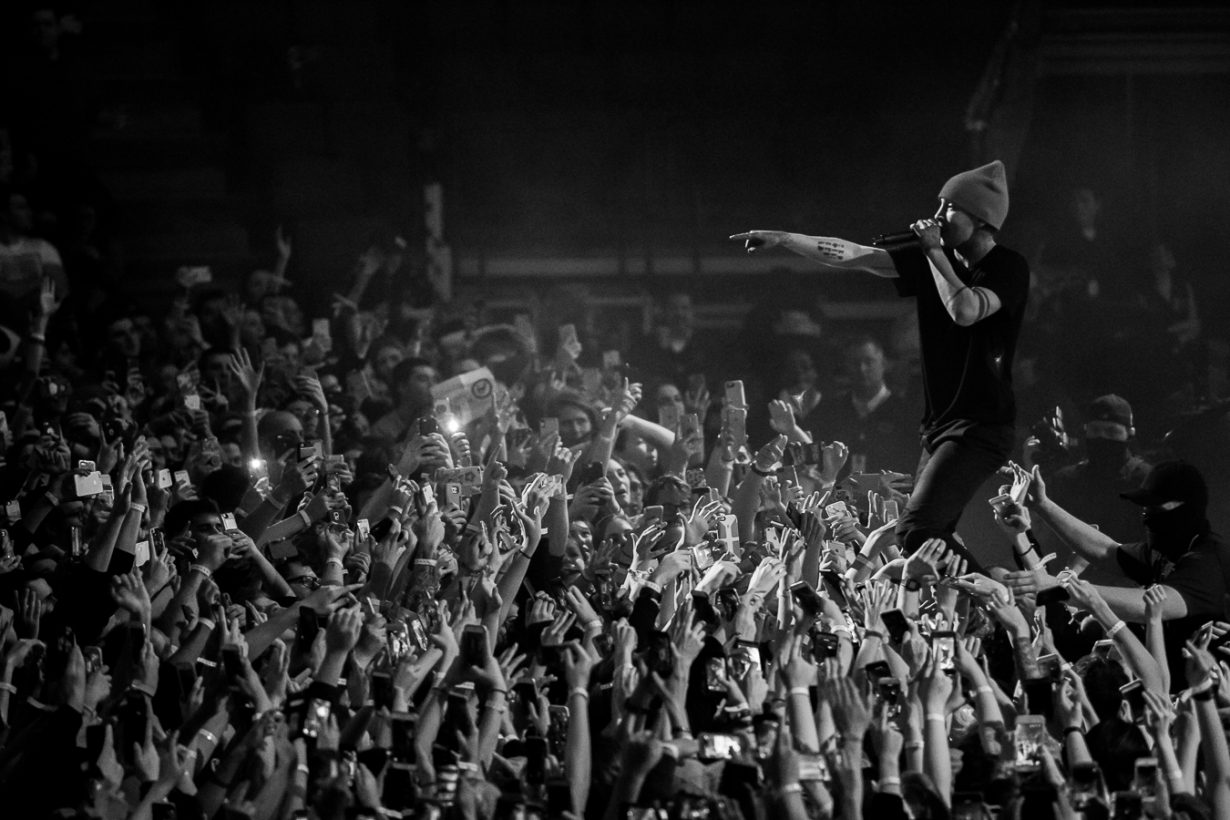
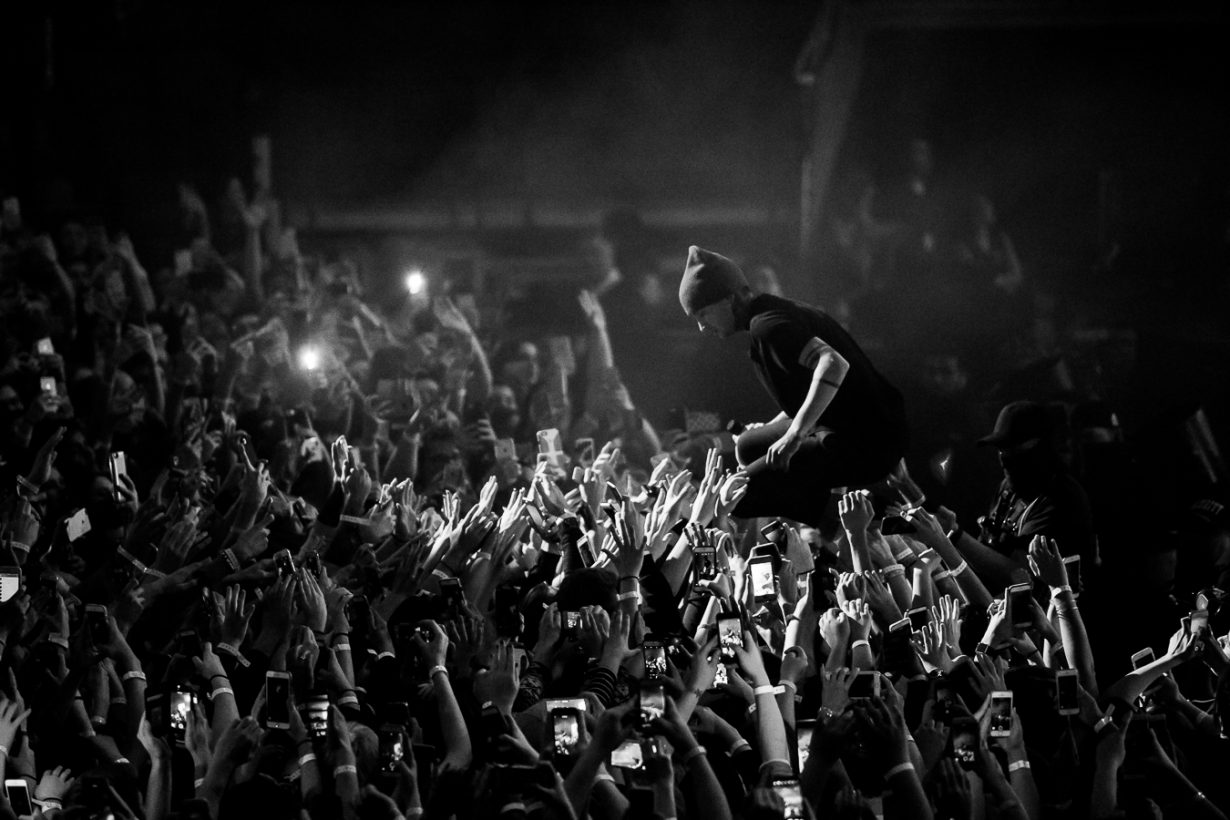
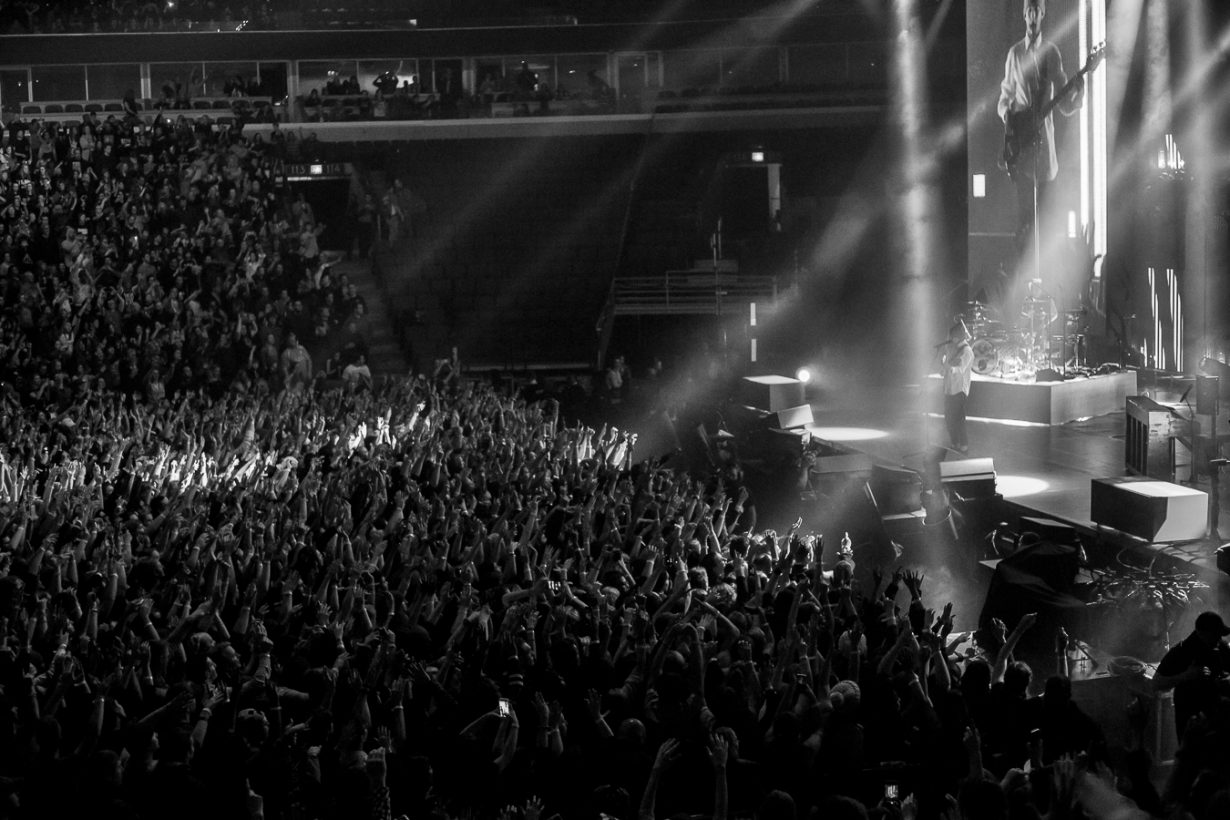
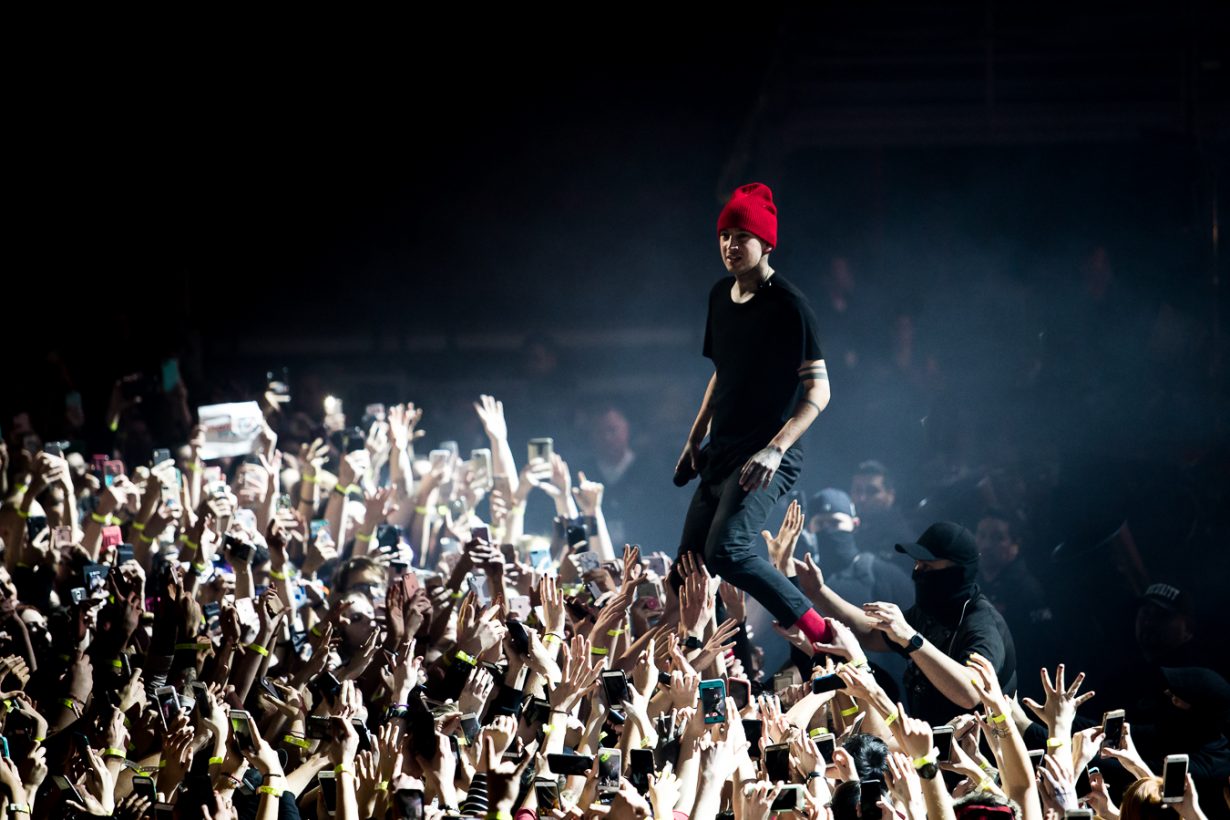
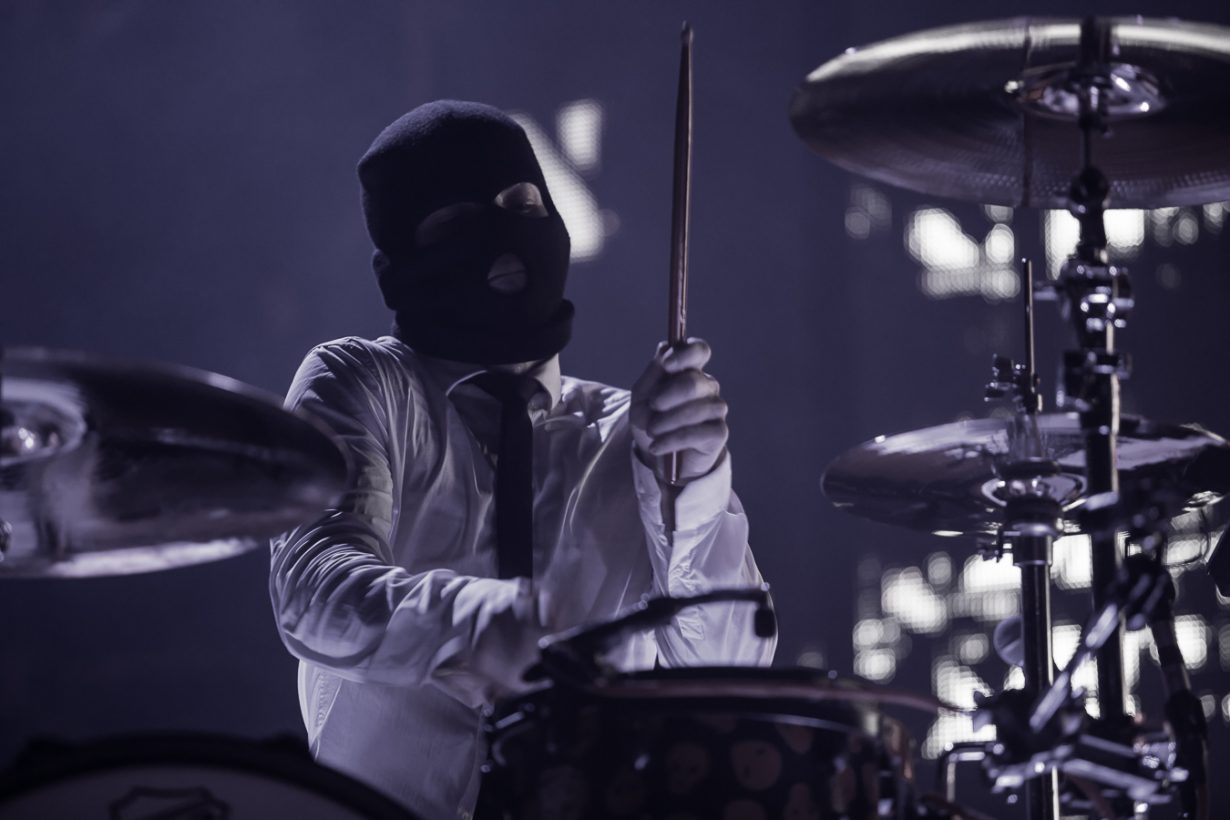
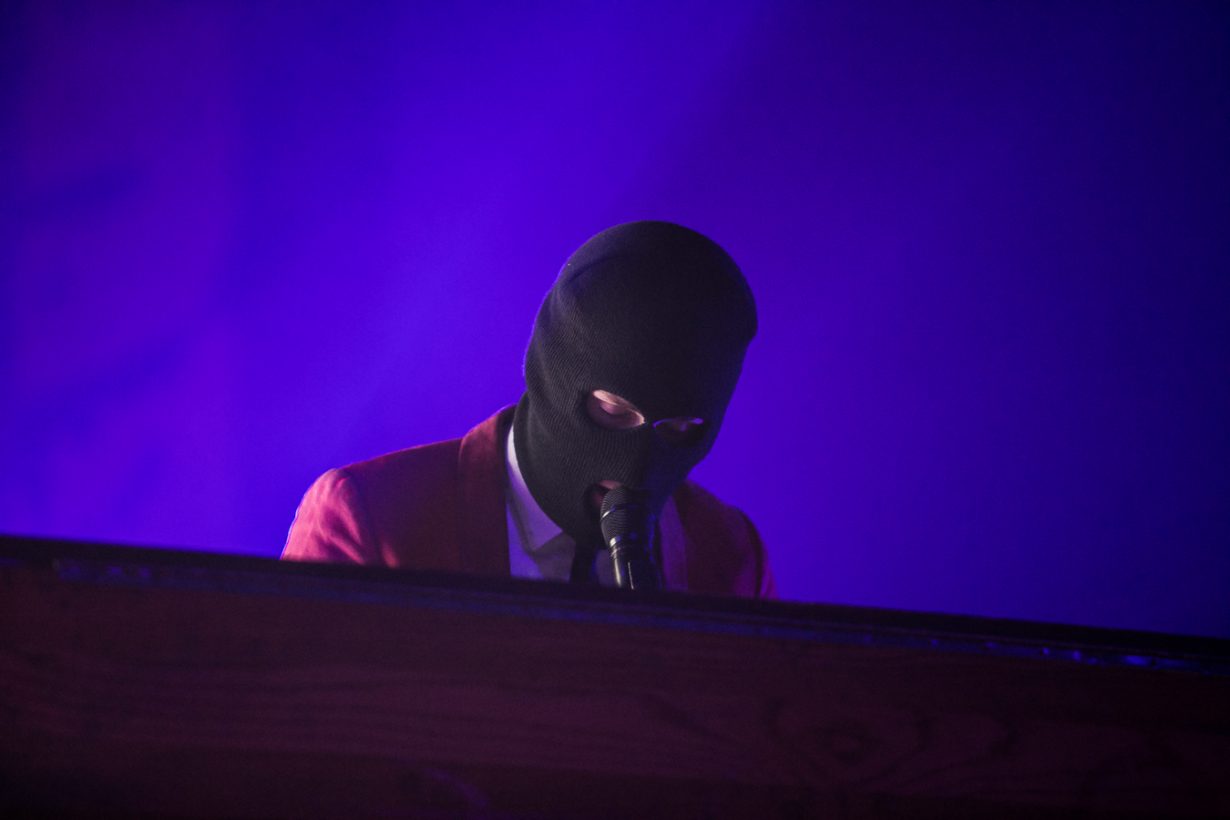
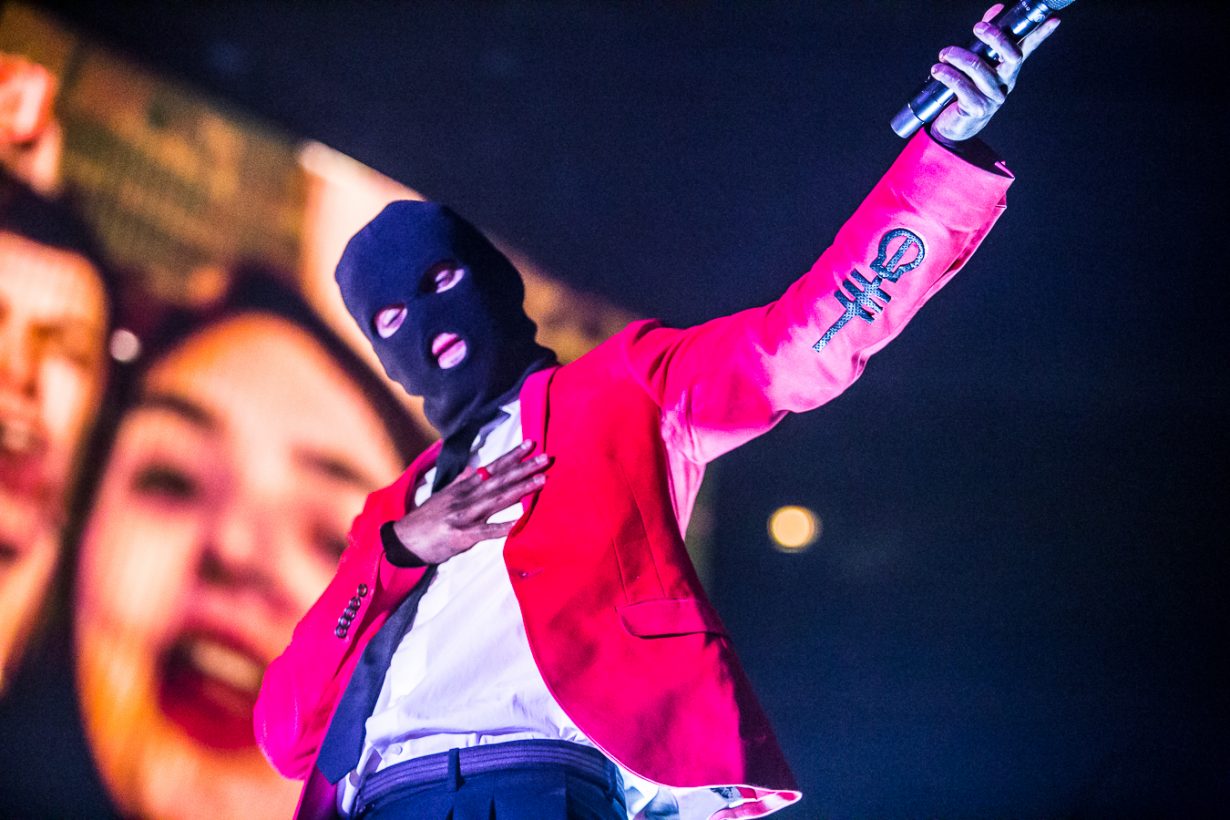
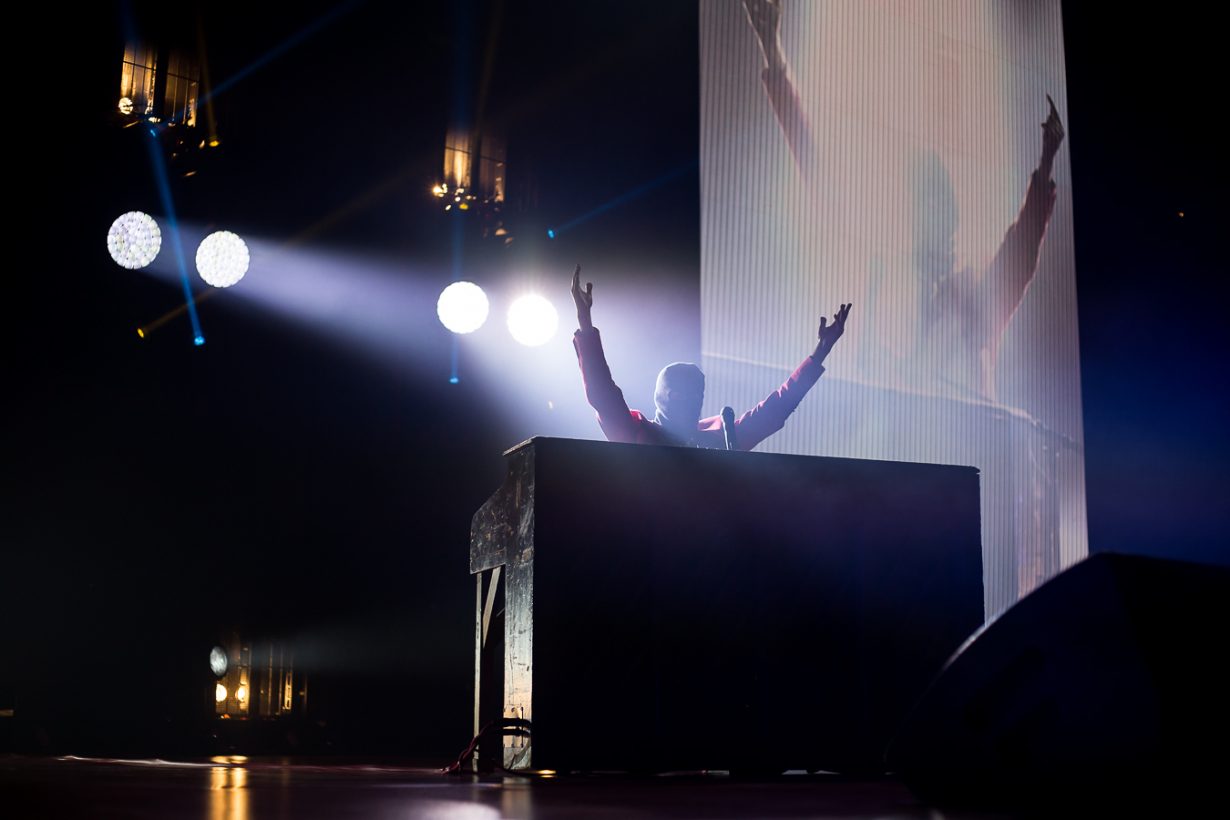
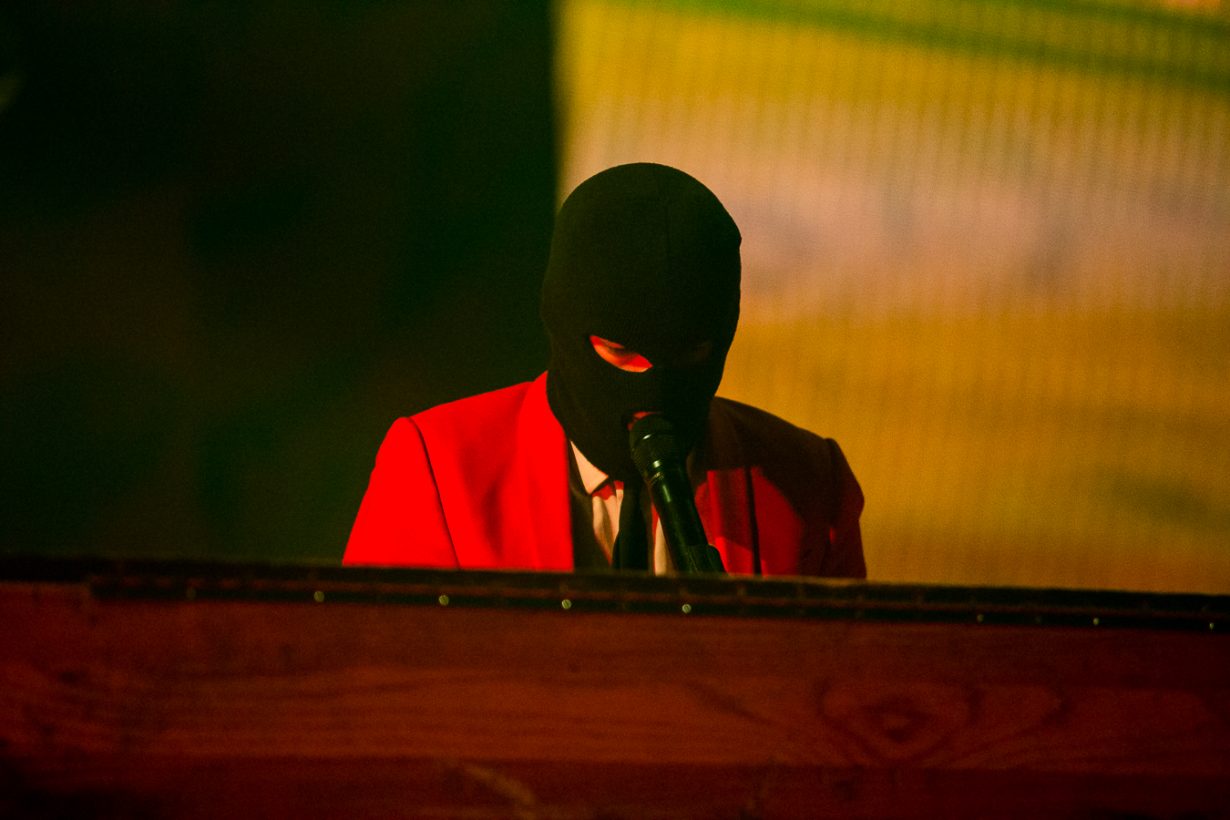
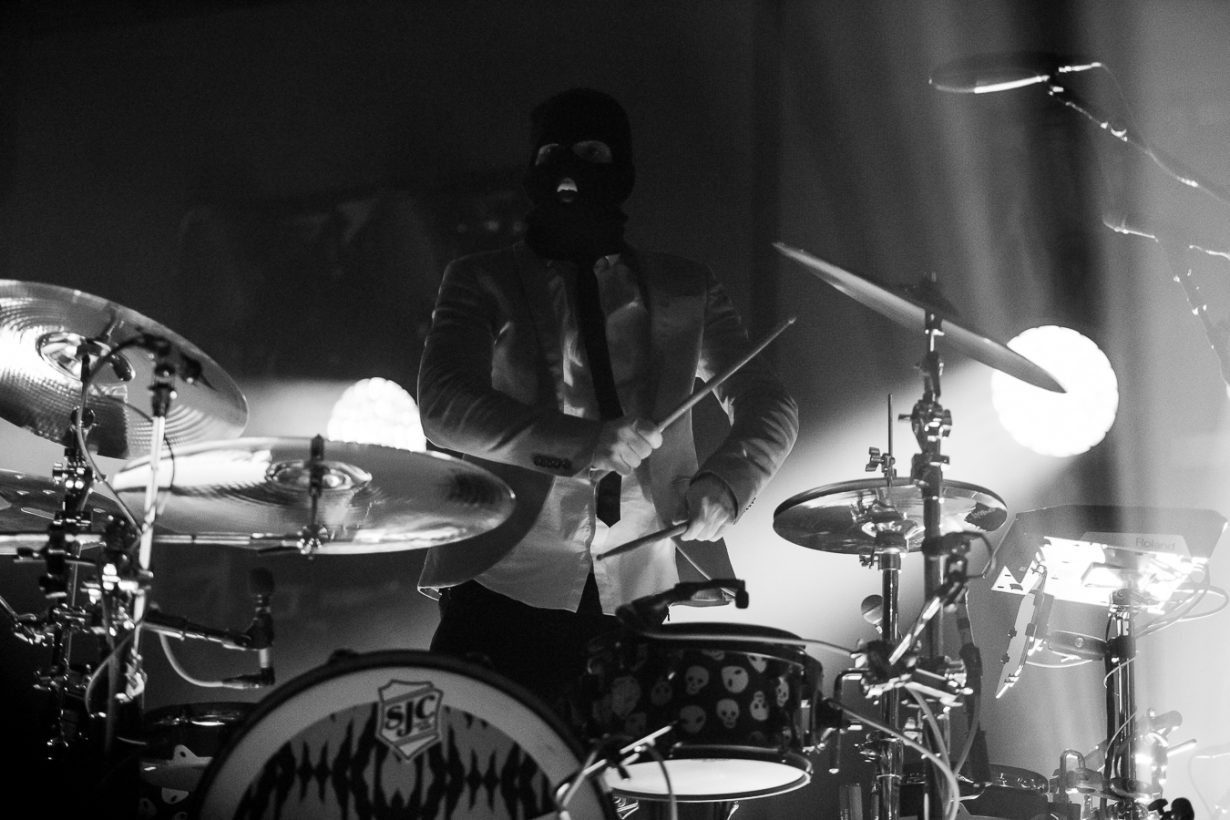
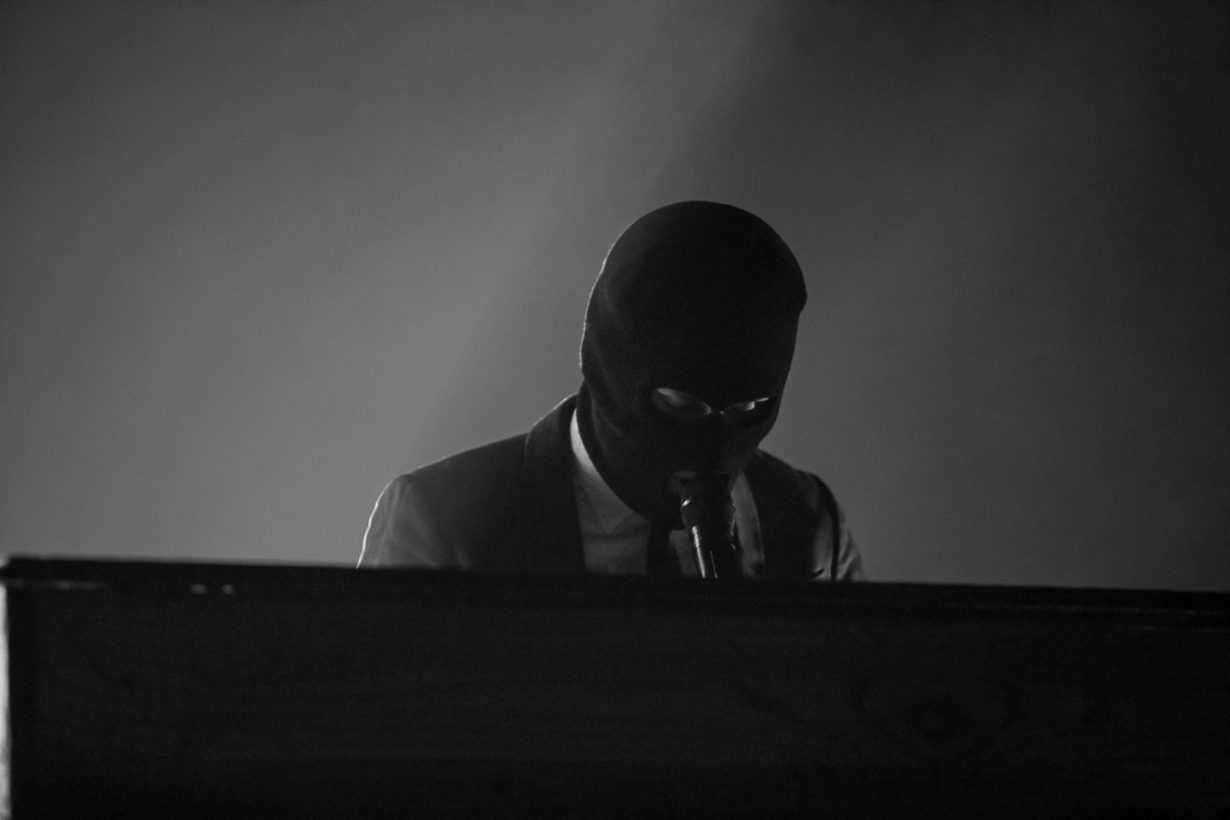
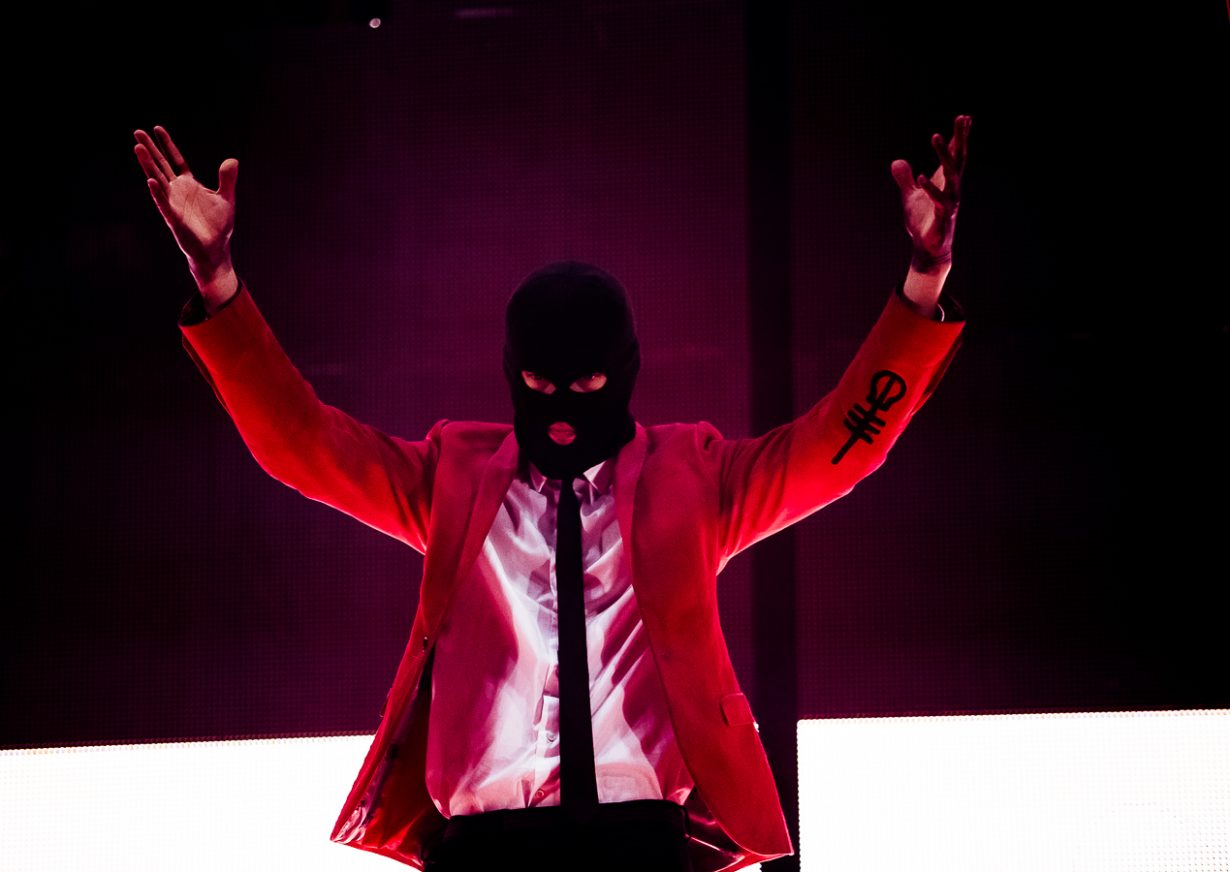
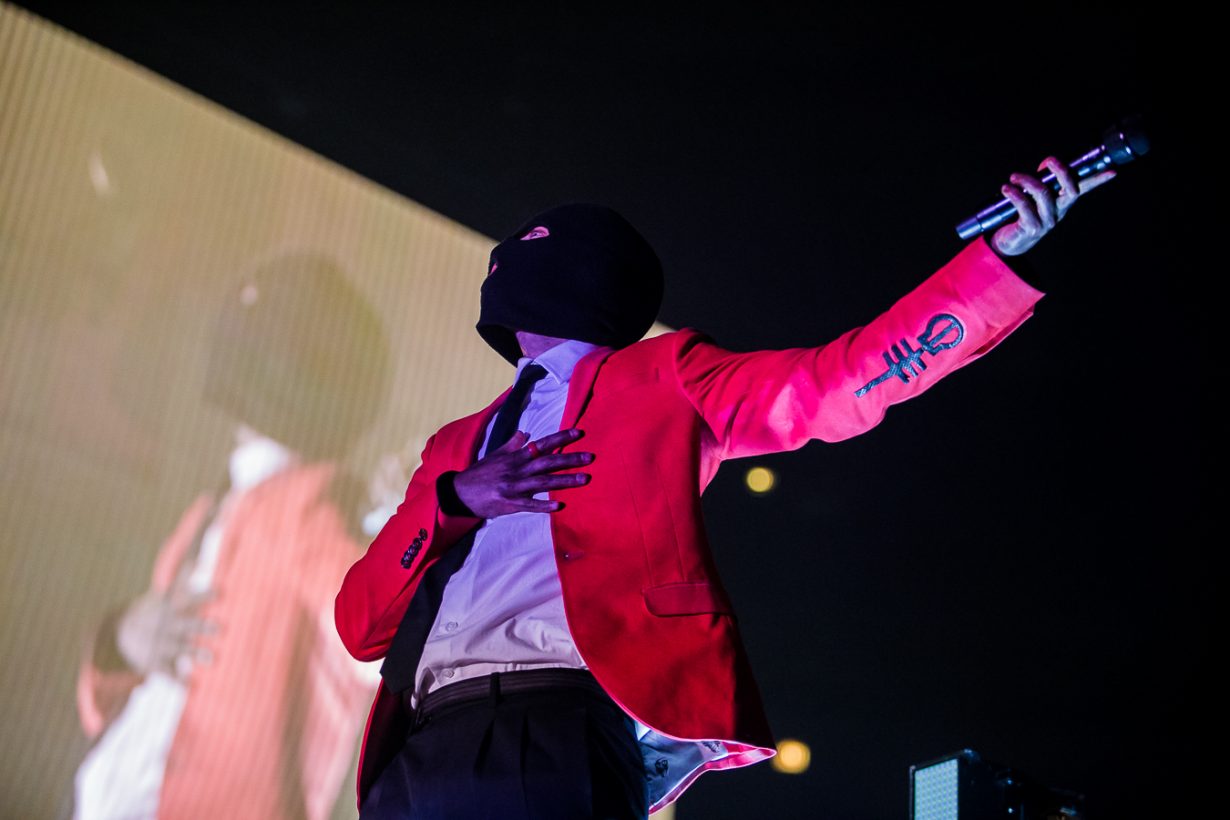
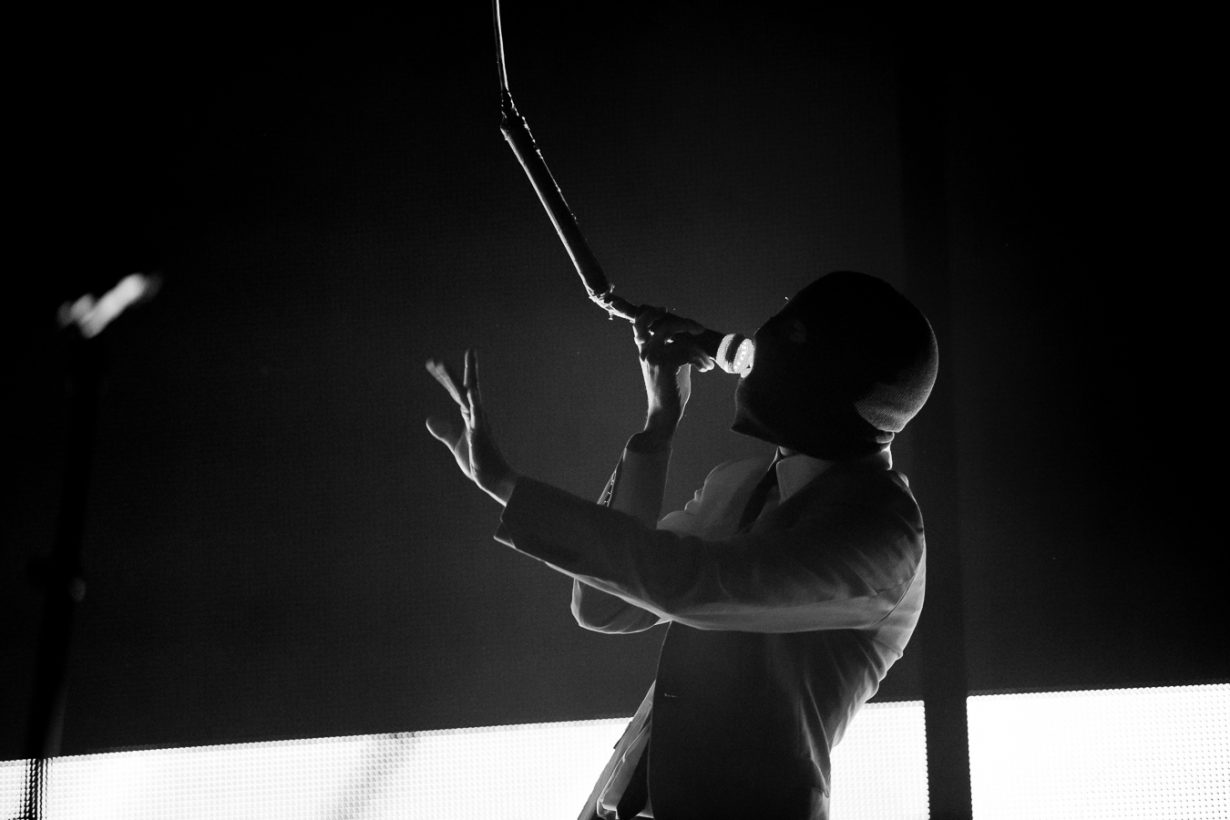
Vocalist and keyboardist Tyler Joseph with drummer Josh Dun had the sold out United Center crowd in a complete music-heaven frenzy. They delivered an unforgettable show but more importantly they posed an important question, “Twenty One Pilots has grown so much in the last two years. How big can they really get?” The answer to that may be an easy one. Fans who attended the sold out show at the United Center can testify as Twenty One Pilots legitimized how incredible they are.
The storybook like show used the stadium sized arena as their personal jam session studio. Although the band only consists of two band members, their performance took them to the center stage, smaller stage on the floor level, crane operated platforms, to even for drummer Dun on top of the crowd.
Openers Bellion and Judah & the Lion joined Twenty One Pilots for a full on jam fest. They performed cover songs from “Tubthumping”, “No Diggity”, “Where Is The Love?” and “Jump Around”.
Nearing the end of their Emotional Roadshow World tour, Twenty One Pilots’ growth over the past few years is well-deserved. Blurryface their fourth studio album made a bold statement. This band is one of a kind and it’s not going anything.
[iframe id="https://www.youtube.com/embed/pXRviuL6vMY"]
[Playlist of the Week] 10 Blockbuster Hits of the Summer
With summer right around the corner, film buffs everywhere are gearing up for the soundtrack releases. While most people aren’t interested in scores, we’ve found the small light with familiar songs being featured on each film's respective OST. In no particular order, here are 10 songs featured on blockbuster soundtracks of movies being released this summer.
[RH Photos] Lollapalooza 2014 Recap
Photos by Bobby Reys
While I’m not the world’s biggest fan of music festivals, I try to maintain the mindset that it’s all about perspective. This year at Lollapalooza, while the set list may not have been caked with the crème de la crème of notorious artists, the artists that came through held the festival down and provided quality performances to make this yet another enjoyable year for Lollapaloozers. Icons such as OutKast and Eminem hit the stage, as did Chicago’s own Vic Mensa and Chance the Rapper. Check out my recap on the artists I saw this Lollapalooza down below.
Portugal. The Man
Being the first band I saw at Lollapalooza this year, Portugal. The Man opened with “Purple Yellow Red and Blue” and established a positive tone for my entire Lolla experience. At first glance, the combination of an all-white clothing selection (minus a red and black Blackhawks hat) and a striking falsetto had resulted in John Gourley, the band’s lead singer, to appear as if he had just graced Grant Park with his presence after kicking it in the heavens. Along with that characteristic falsetto, which sounds extraordinarily more refined live, he kept the energy high with songs predominantly from Evil Friends, such as “Atomic Man”, “Modern Jesus”, and “Creep in a T-Shirt”as well as hits from In the Mountain In the Crowd, like “So American” and “All Your Light (Times Like These)”. I was hoping for the high-energy tunes to be balanced out by some of their slower reflective music, such as “Sleep Forever” or “Sea of Air”, but the invaluable enthusiasm rippling throughout their set made blaring out their dark lyrics to buoyant and uplifting beats completely okay, too.
Lykke Li
I showed up to see Lykke Li’s performance almost strictly due to nostalgia I associate with “I Follow Rivers”. Aside from hearing that song, trying to figure out how to properly pronounce her name, and using her set as an outlet to leisurely bop around, I didn’t come in with any other particular anticipation. While setting low expectations often provides the ideal framework for being surprised, saying I was “surprised” is too underwhelming for a description of how her performance made me feel. Following each subsequent song she performed from I Never Learn, Wounded Rhymes, and Youth Novels, I would freeze up, completely washed over by the sensual spirituality her presence evoked on stage. Her eyes would gaze beyond the crowd, extending a stare that acknowledged pain but simultaneously transcended it through her music, and hinted that perhaps Lykke Li knew something about life that none of us in the audience knew. It was an aching stare that can only be elicited by true legends, or one that I specifically imagine the late Amy Winehouse to have been the master of while she was still with us.
Lykke Li’s soothing and gentle vocals were magical, the set’s sound quality itself, unparalleled, and her comfortable yoga pants/all-black apparel gave her an “I can wear whatever the fuck I want, you don’t know what I’ve been through” badass boss-girl look that pelted her high up on my girl-crush list, and even higher up on my artists-that-I-can’t-stop-listening-to-post-Lolla list. Although I am still unsure as to how to pronounce her name, whenever she makes a move back to Chicago and to a venue where the acoustics will contribute all the melodious justice she deserves, there’s no doubt that I’ll be there.
Eminem
“What the fuck, Slim?” is the question that kept repeating itself over and over in my mind throughout his entire set. His performance was saturated with his new music, all until he made the out-of-left-field move to perform “White America”; a tilted black and white flag with the song’s title written on it waved on all three screens in front of the crowd, while the audience, not knowing the majority of song lyrics, would chime in at every blared “White Americaaaaa”. I was irritated, specifically at the crowd for bouncing around without understanding the message of the song nor the rest of its lyrics, but also at Eminem for choosing this specific track to kick his throwbacks off with, setting off a discomforting tone amongst the crowd of bros who were working their red, white, and blue bandanas to the fullest.
In regards to more of his old music, there was a point in his performance mirroring his set in 2012 where he preluded his infamous hits with the question: “Chicago, do you want me to relapse with ya’ll tonight?” This time, he asked, “Chicago, do you want me to take you back to the days when I used to get fucked up?” to which the audience went wild, only to receive a weak medley of a few of the classics in return, including “Like Toy Soldiers”, “Sing for the Moment”, “Without Me”, and “Lose Yourself”. While Slim wants to move away from the days that brought him so much pain and struggle, the hits he created in those days established his entire artistic identity. Ultimately, the highlight of his set was when he brought out Rihanna for three songs, and particularly when she sang Dido’s verse in “Stan”. Girl should’ve taken over the entire thing from that song on, because she truly stole his show.
Lorde
I stopped by Lorde’s performance for two or three songs to fill a gap of my time in which I wasn’t hustling to see any other particular artist. We can all agree that Lorde has an impressive voice and an even more impressive career for a 17-year old girl. Regardless, in retrospect, I would’ve most likely been better off spending that gap of time I had double-fisting deep dish pizza and fried chicken instead of sifting through the crowd to hear any of her tunes. Her audience extended a long ways back, and ultimately, maneuvering through a sea of young girls bonding over statements like “I have curly hair, too! Yeaaaah!!!” made me quit my mission before launching full throttle in pursuit of getting closer to the front. Walking away from her performance area, I kept imagining I was hearing “Royals”, but it would repeatedly turn out to be another song with similar beats. I leave praising Lorde to the committed fans that stuck through it all.
Fitz and The Tantrums
Similarly to Portugal. The Man, Fitz and The Tantrums kill it so much more effectively live than they do via studio produced albums. Live, the voices of both lead vocalist Michael Fitzpatrick and vocalist Noelle Scaggs are amplified in quality, as is the saxophone played by James King. And in person, Scaggs rocks the majority of the stage with her presence, whereas through albums alone, I’m hardly ever cognizant of her role within the band.
Fitz and The Tantrums’ set, in general, was dominated with energy, and appropriately so, considering their performance slot was at 4:15pm and assisted by the blaring heat of the Chicago sun, which finally chose to make an appearance after escaping us for most of Friday and Saturday. Whether hot or not, songs from More Than Just a Dream, including “Out of My League”, “6am”, “Break the Walls”, and “The Walker” kept the audience jiving all the way through. We were appreciating the band’s consistently cheerful vibes and their vocalized recognition that the city of Chicago played one of the most critical roles in putting them on the map as artists.
Vic Mensa
Watching Vic Mensa make moves from Whitney Young High School student to Kids These Days vocalist to solo artist will always secure him a warm spot within my heart. It’s been touching watching him grow as a Chicago-based artist, and I love seeing his name on set lists for large performances, especially Chicago festivals like Lollapalooza. This is my second time seeing Vic at Lolla, and specifically at the BMI Stage where Twista made a guest appearance in 2013. Whereas last year I recognized many of the spectators around me, this time I couldn’t identify a single one. I’m considering this as a good thing, considering his fan base is spreading like wildfire, reaching not only the east and the west coast, but growing quickly in Europe and in the UK. During his set, Vic graced us with newer tracks including “Down on My Luck” and “Feel That”, and even made sure to bring it back to the Kids These Days days with “Don’t Harsh My Mellow”. It’s always a pleasure to support him whenever he’s in the Chi.
OutKast
You have officially snoozed if you were at Lollapalooza this year and missed OutKast’s performance. They accumulated an audience reminiscent of The Red Hot Chili Pepper’s’ audience count back in 2012, and kept things flawlessly grovin’ for the full hour and forty-five minutes. At around 9:30, they played “Hey Ya!” and had me worried about how they were planning on filling up the remaining 30 minutes of their slot, but keeping it cool and collected, they brought it back to “So Fresh, So Clean” and “Int’l Players Anthem” and kept us coasting without missing a beat.
Chromeo
Seeing Chromeo at Lollapalooza was my third time seeing Chromeo perform in the city of Chicago. They had me committed as a band from the day I designated a now ex-boyfriend of mine as my “Tenderoni” in 2009, and will continue to keep me hanging on purely due to Fancy Footwork. Their new music doesn’t sustain my interest much, but it’s been wonderful watching them transition from Congress Theater to Lollapalooza and seeing them grow as artists.
Flosstradamus
My Flosstradamus experience was moist, muddy, and everything you’d expect for a Flosstradmus experience at Perry’s to be. I spent most of my time blindly pushing wylin’ mosh-pitters out of my face and trying to avoid licking up as much foreign sweat as I possibly could. However, I came in knowing I’d have to get through this with the mindset of a 16-year-old me who was way more about this type of life, and who had a great deal more of both energy and tolerance for the young and reckless.
While Floss is known to live up to their reputation of creating a good time, which they did, there were times when I wondered why they’d spin played out tunes like “Roll Up the Grass” into their set, or why they didn’t stick to a more Girl Talk-esque mélange of songs instead of repeatedly dragging out traditional EDM beats. Either way, I loved when they incorporated trap songs like “Move That Doh”, and found myself grooving along to whatever their hearts put out for us.
Chance the Rapper
It gives me just as much joy to see Chance the Rapper perform as it does to see his brother Vic Mensa. This time, however, Chance set the bar at a different height, with this being his first-ever time to headline Lollapalooza. It was a very special experience seeing him share the stage with artists Peter CottonTale, Eryn Allen Kane, and Donnie Trumpet (aka Nico Segal) to list a few, and to hear the audience spit lyric after lyric back at him from both #10Day and Acid Rap. The positive energy amongst the crowd was incredible to vibe off of, as it was just watching him represent CPS, an entire generation, and city.
In addition to tracks off of #10Day and Acid Rap, Chance played “Wonderful Everyday”, brought out Vic and * pause * R. Kelly, and he owned all of that shit. You could see it in his eyes that he was very grateful to be where he’s at, and we hope he’s back to headline many more Lolla shows to come.
Grading the Grammy Nominations
As the music industry has evolved over the past decade into the digital world, things have changed quite a bit. Hard copies are hardly ever bought anymore, nor does anyone seem to buy whole albums at all, as the iTunes Store model has taken over and the industry has increasingly become about what the consumer wants as opposed to what the labels want the listeners to hear. While this has resulted in a sort of musical reawakening, creating a culture where listeners can stream, download or play any track they can think of with the touch of a button, music has expanded at a rapid pace, creating new genres and sub-genres and infinite new off-shoots that don't fit cleanly into any one established genre or sound.
Standing behind this industry, bearing the largest prize of all, is the Grammy Awards. This year, the award show enters its 56th installment and, while a dance music category was finally introduced last year, the judging seems more out of touch than ever, but of course this has been an issue for some time. The Grammys are like Social Security. You don't really care about it much until you're too old to get up from the sofa. Generations have rallied against the award for years. In 1991 Sinead O'Connor simply refused to show up and boycotted the show, despite being nominated in four categories. After winning "Best Hard Rock Performance" in 1998, Pearl Jam frontman Eddie Vedder stood onstage perplexed and, staring at the golden trophy, said into the microphone, "I don't know what this means. I don't think it means anything." It's not news that the team behind the Grammy Awards has been out of touch for some time, but at no time in history has it been so blatantly about the money in an industry that today makes significantly less money than it used to. It's macroeconomics of the current American condition played out with celebrities and gold gramophone statues. Plus, Kanye already spoke out. So, for this latest round of Grammy nominations, I figured I would sift through who was chosen and offer up my own choices for the top prizes in music this year.
[Video] Eminem: "Rap God"
Eminem has shared today the official "Rap God" video from his recently released album, The Marshal Mathers LP II. The visual features Em --inspired by Max Headroom--taking in as much information as possible while completely spazzing out with bar after bar with no rest. The Marshal Mathers LP II is available now everywhere records are sold.
[youtube id="XbGs_qK2PQA" mode="normal" align="center"]



